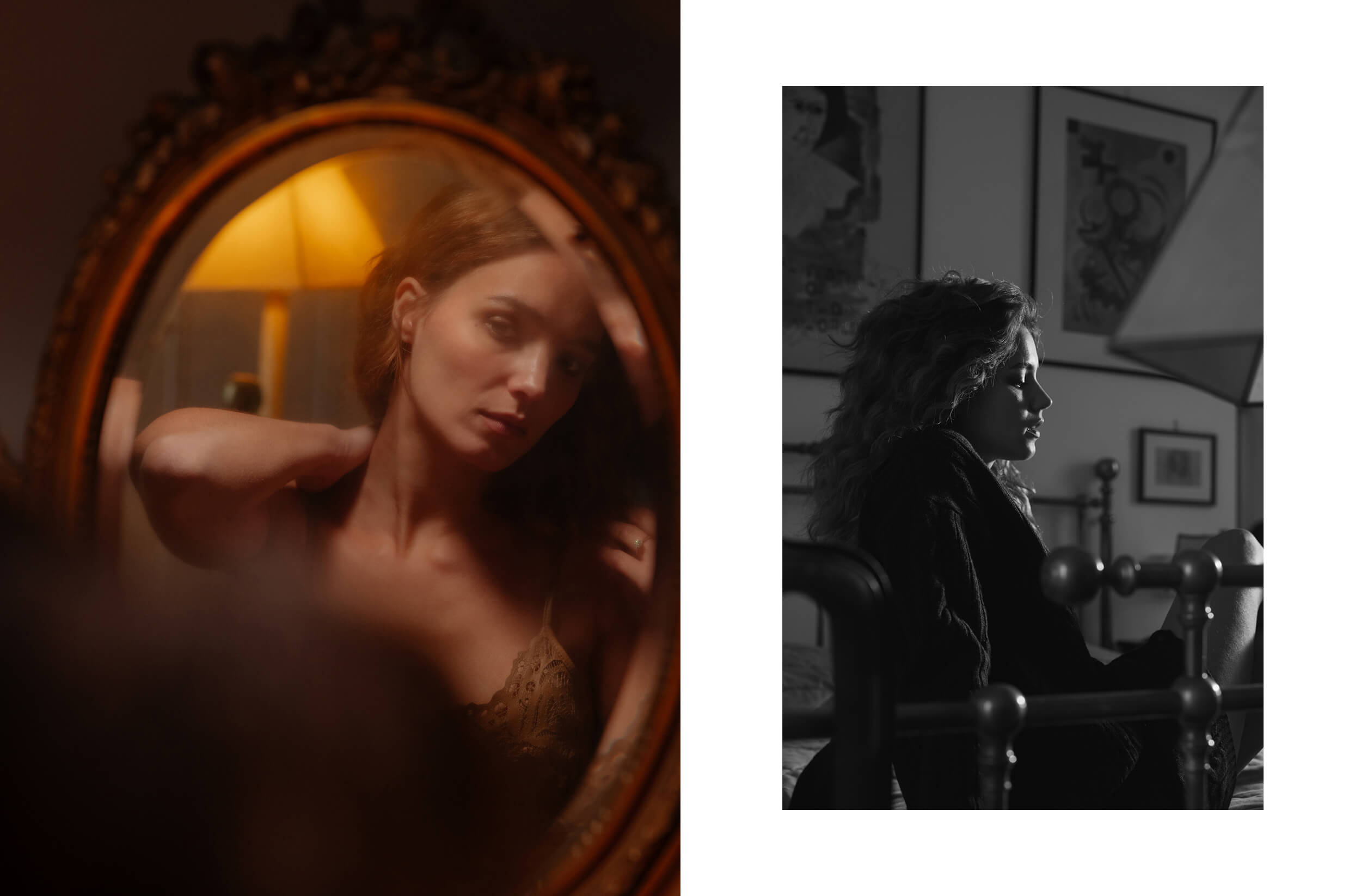Poetry, waiting, desire, greatness: these are the building blocks of human history and the themes of Giacomo Leopardi’s poetics.
A miniseries titled “Leopardi – The Poet of the Infinite”, directed by Sergio Rubini, has recently aired on Rai 1, offering both those familiar with the famous Italian poet and those who know little about him a new perspective on his life and inner world. In our January Cover Story, Giusy Buscemi shares her journey in portraying Fanny, one of the key characters in the series. Through her words, we discover the deep connection she developed with Giacomo Leopardi’s figure and the challenge of bringing a complex, multifaceted character to life.
From preparation on set to the intense work on the character’s psychology, between words, emotions, and personal discoveries, Giusy gives us a special glimpse into the life and art of the famous poet from Recanati. She also offers deep reflections on the meaning of love, solitude, and the ongoing search, universal themes that still resonate in our society today.
What is your first cinema memory?
My first memory related to cinema is the quintessential romantic movie, “Titanic”, which I saw when I was very young. I remember running around the seats in the theater and occasionally stopping to turn toward the screen, which seemed huge to me. I also remember taking a long trip to be there because there was no cinema in my town, so it was a real event.
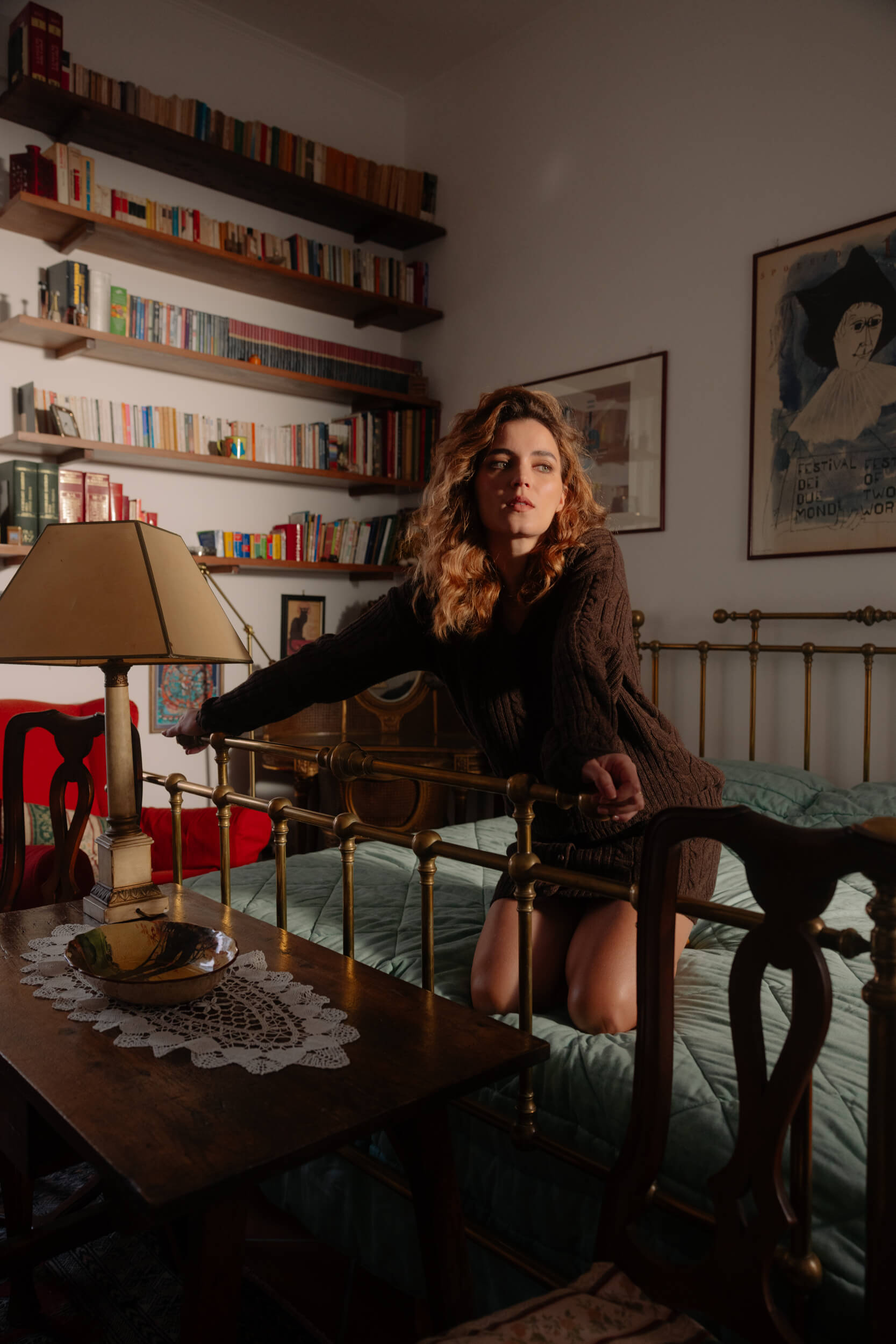
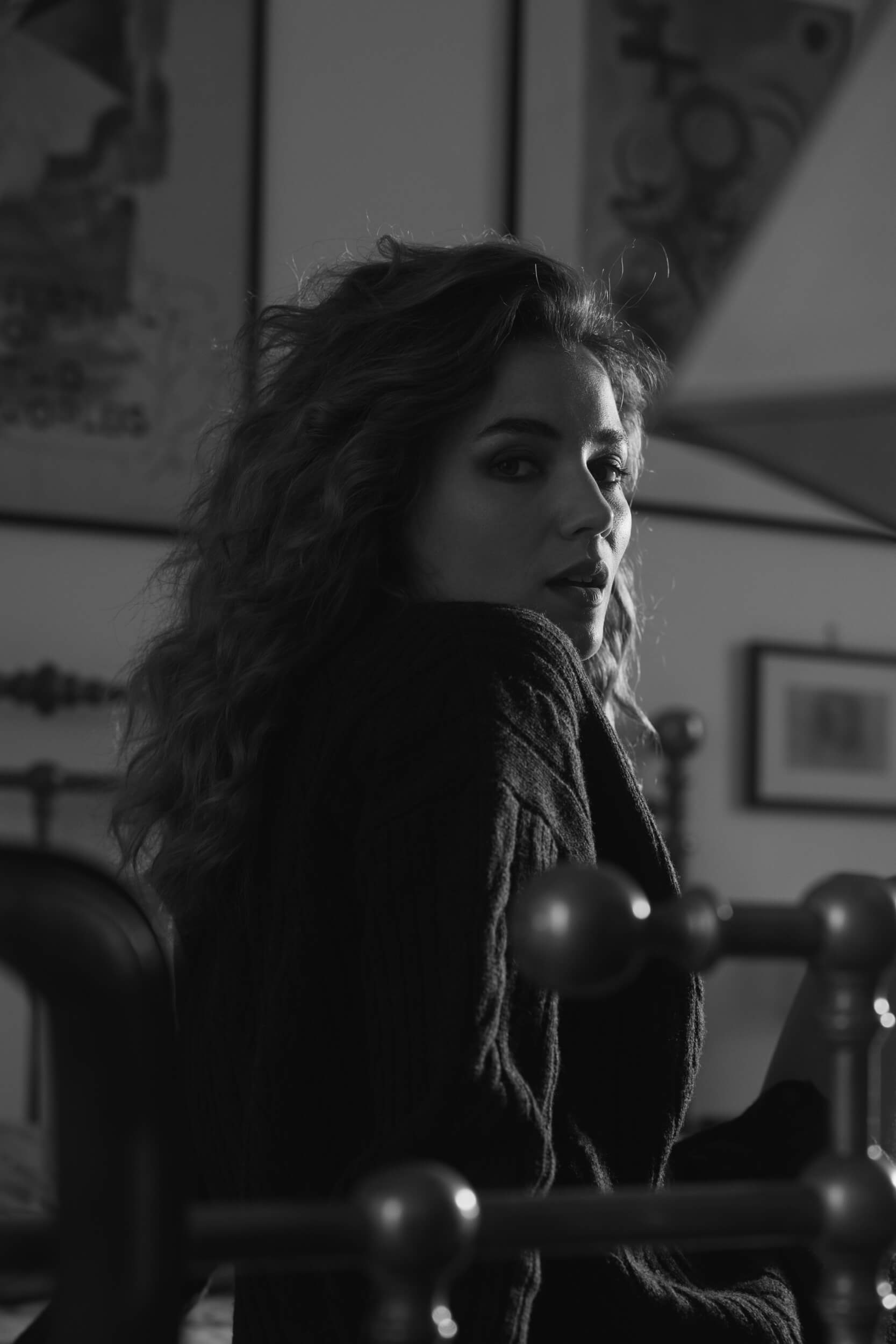
What was your first reaction when you found out you would be part of the cast of “Leopardi”? What connection do you have with the poet’s figure, and what aspects of his life and history did this project open your eyes to? Regarding the historical figures we learn about in school, I believe that what we think we know is never enough.
Initially, I wasn’t supposed to do this project because it was set to start simultaneously with another, “Vanina”, that I was about to begin. I had auditioned, but then the filming was delayed, and I was really disappointed. However, the start of the filming was postponed again, and they called me back. It was a great joy for me because I cared a lot about portraying such a nuanced and highly judgeable character, due to her way of pursuing what she desired at all costs, even beyond friendship. It was wonderful to convey her needs: Fanny is a character with many facets.
Regarding Leopardi, and this applies to him as well as to Manzoni, Dante, and others, the problem with writers who are already known is the tendency to label them immediately, without allowing each person to form their own opinion. This sometimes happens with people too: the more famous and exposed they are, the harder it is for them to be discovered. From my perspective, it was a bit like that with Leopardi: he is immediately cataloged as a pessimist, to be viewed with pity. Instead, thanks to Sergio Rubini, the director, and a great lover of this poet, I learned to know Leopardi differently and more deeply. During the filming, I also had the great opportunity to meet Leopardi’s niece, Olimpia. She welcomed me to her home in the Marche and told me a bit about Fanny, saying right away,
“You know Fanny is not well regarded?” [laughs].
It was nice to know a man who didn’t actually escape life but desired it more than anyone, despite his physical condition. This is a great encouragement, especially for adolescents approaching such a great poet: Leopardi was very curious and a great observer because all his poems stem from great observations of what surrounded him. Often, of course, what the things around him promised turned out to be rather an illusion, a disappointment as if they were never enough.
However, I wouldn’t categorize this merely as “pessimism” but rather as a constant and continuous desire to seek.
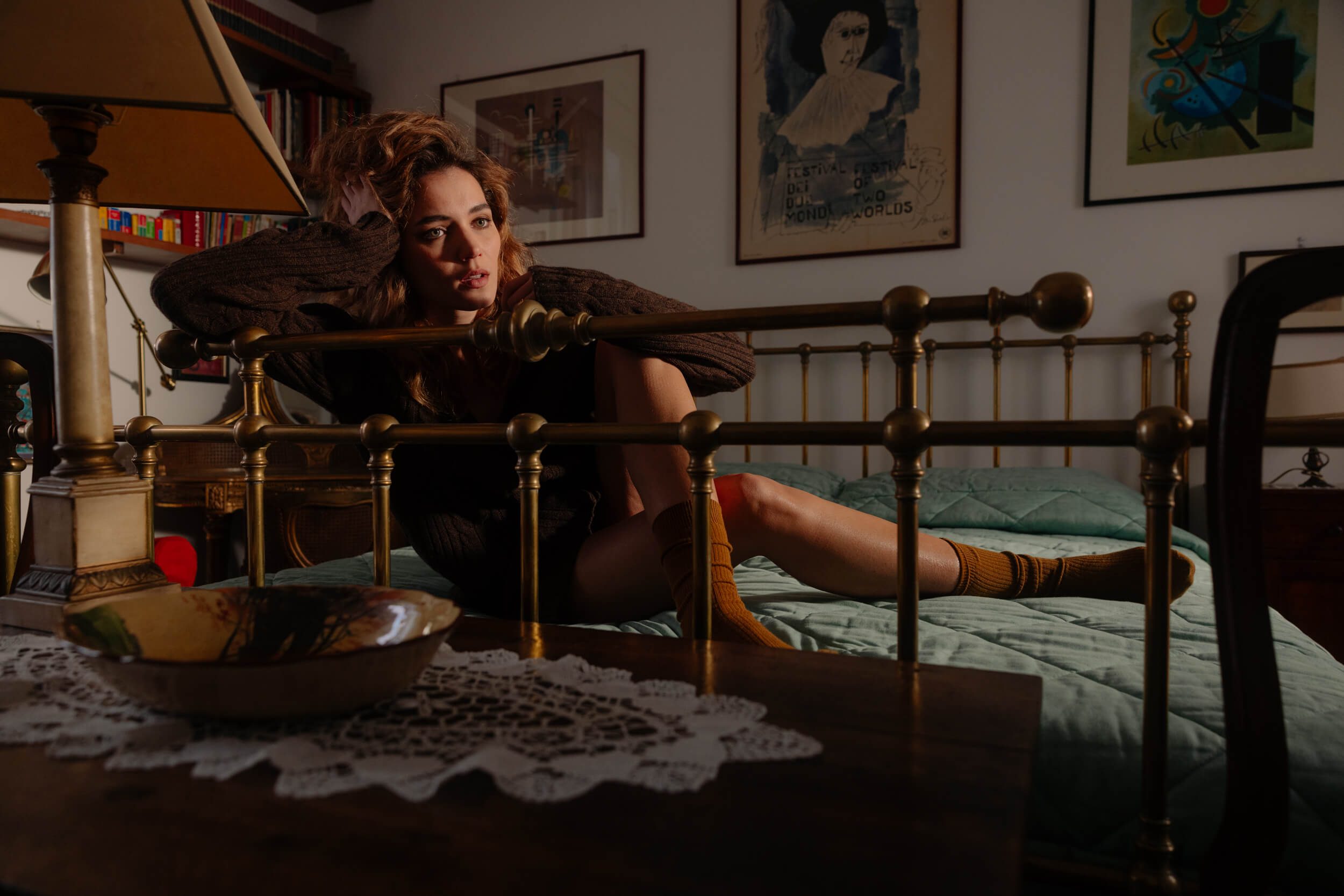
“It was nice to know a man who didn’t actually escape life but desired it more than anyone”
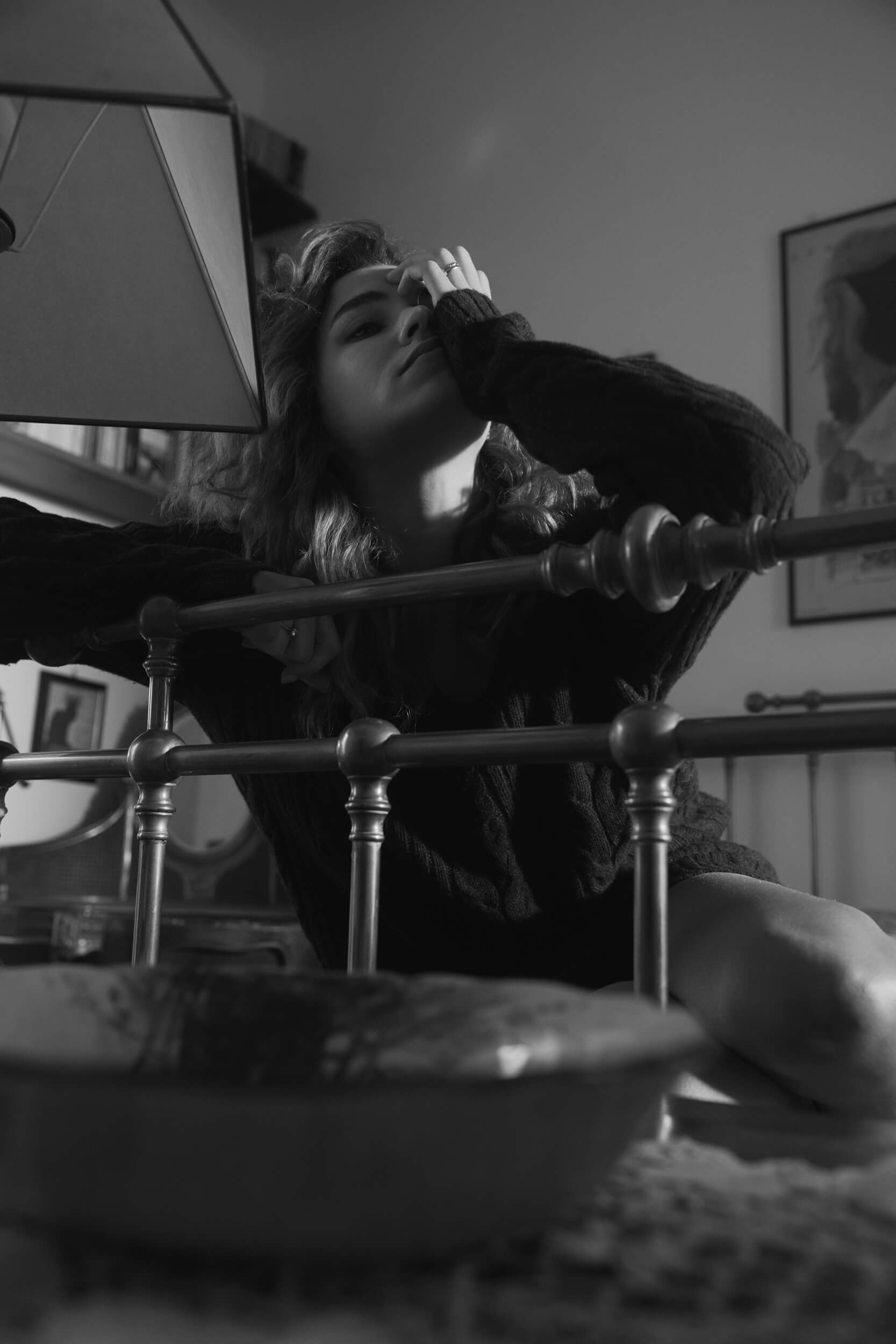
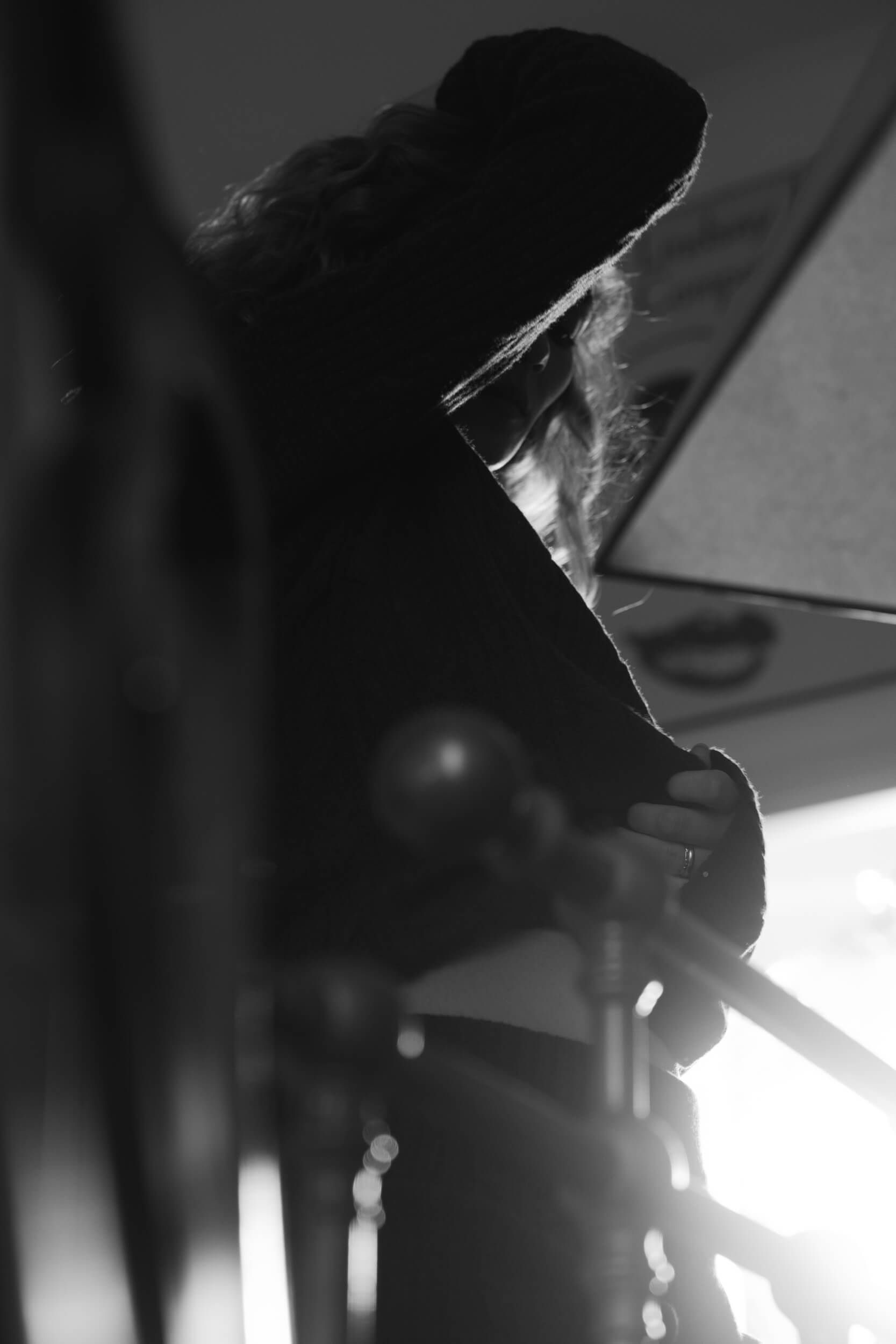
How did you prepare to portray your character, such a fascinating and complex historical figure?
Sergio Rubini was a great help, first of all. Then, Cristiano Caccamo and I also took etiquette lessons to learn how to eat at the table, how to set the cutlery and posture, although the costumes helped a lot with that too. I also personally prepared with an acting coach because I understood Sergio’s desire and had to find a way to work on it. He wanted a romantic inspiration.
He wanted my character to have slightly altered breathing that had to be natural as if there was an earthquake inside her, but on the outside, it translated into great balance and elegance.
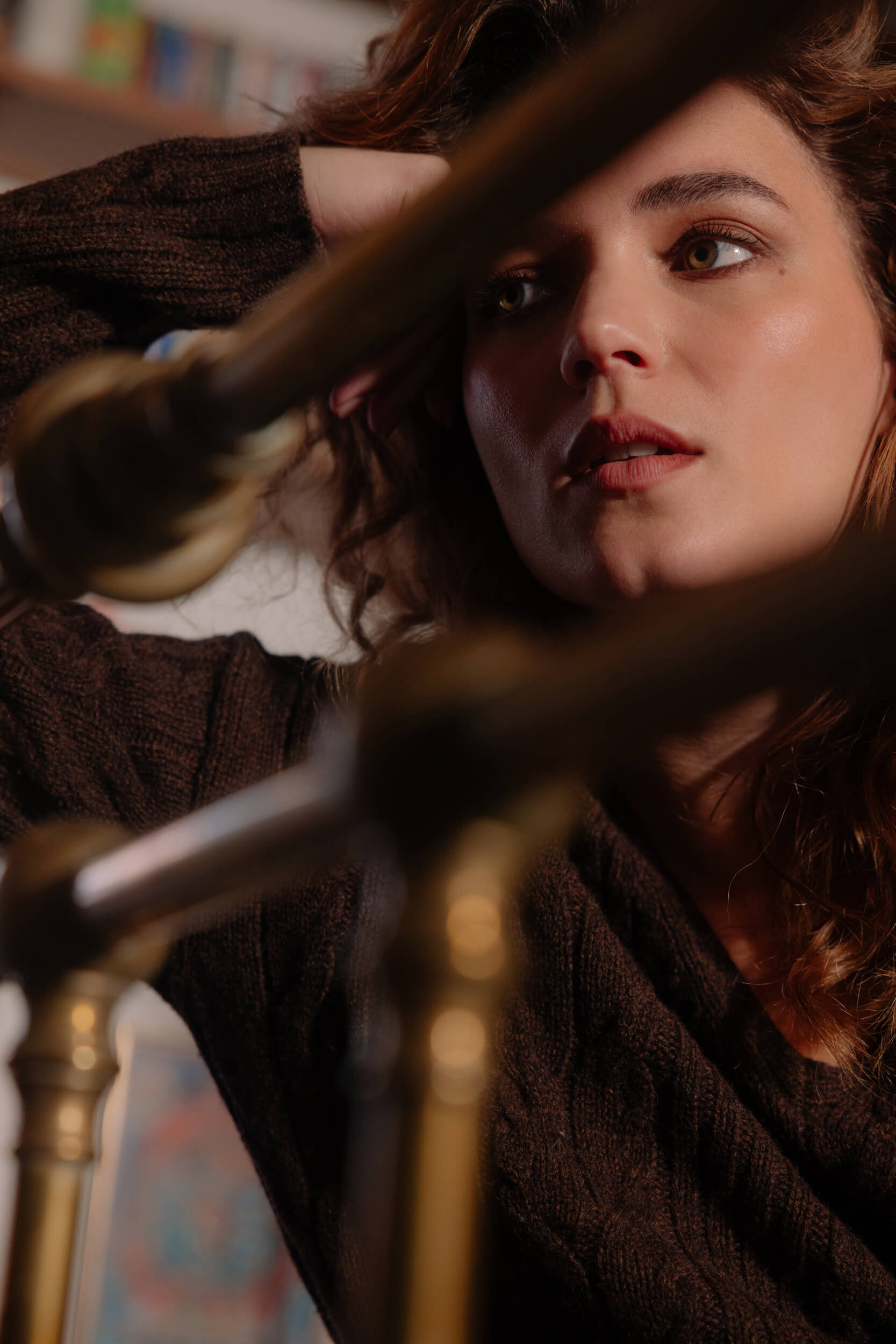
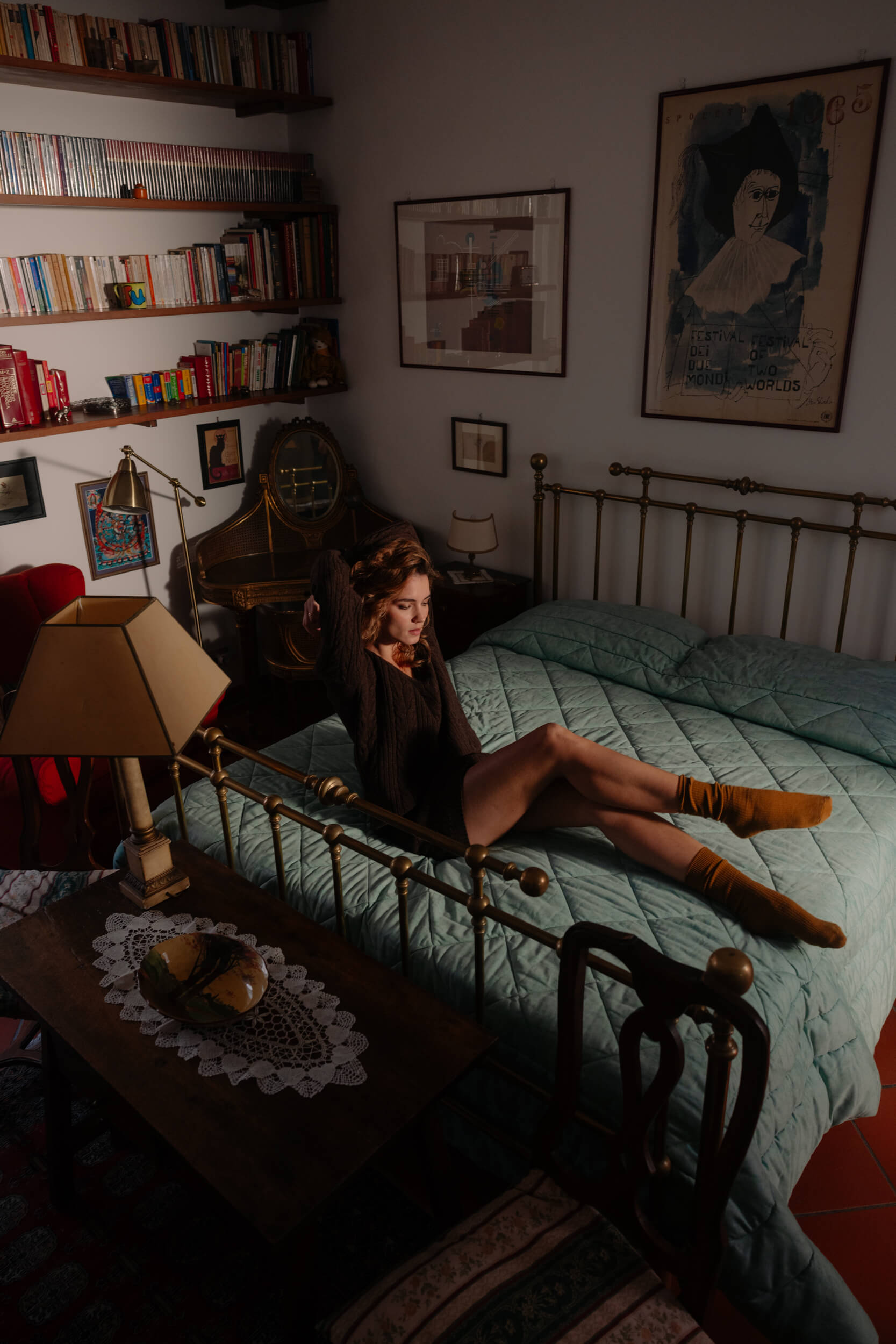
Since you had the opportunity to delve into the relationship between Fanny and Giacomo Leopardi, what struck you most about their relationship? How would you describe its evolution throughout the series, and what aspects of this relationship moved or surprised you the most?
I was struck by seeing that these characters actually go through two parallel paths. It’s the story of two waits: on one side, Leopardi’s for Fanny, and on the other, Fanny’s for Antonio Ranieri. These waits fueled their art, as Leopardi himself says several times: he could talk about a desire for love that simultaneously produced “something else”, not related to love itself but to art in general. Love can be the engine that drives everything else, even if, as in their case, it is unrequited.
Since the dawn of time, love has been at the origin of creativity.
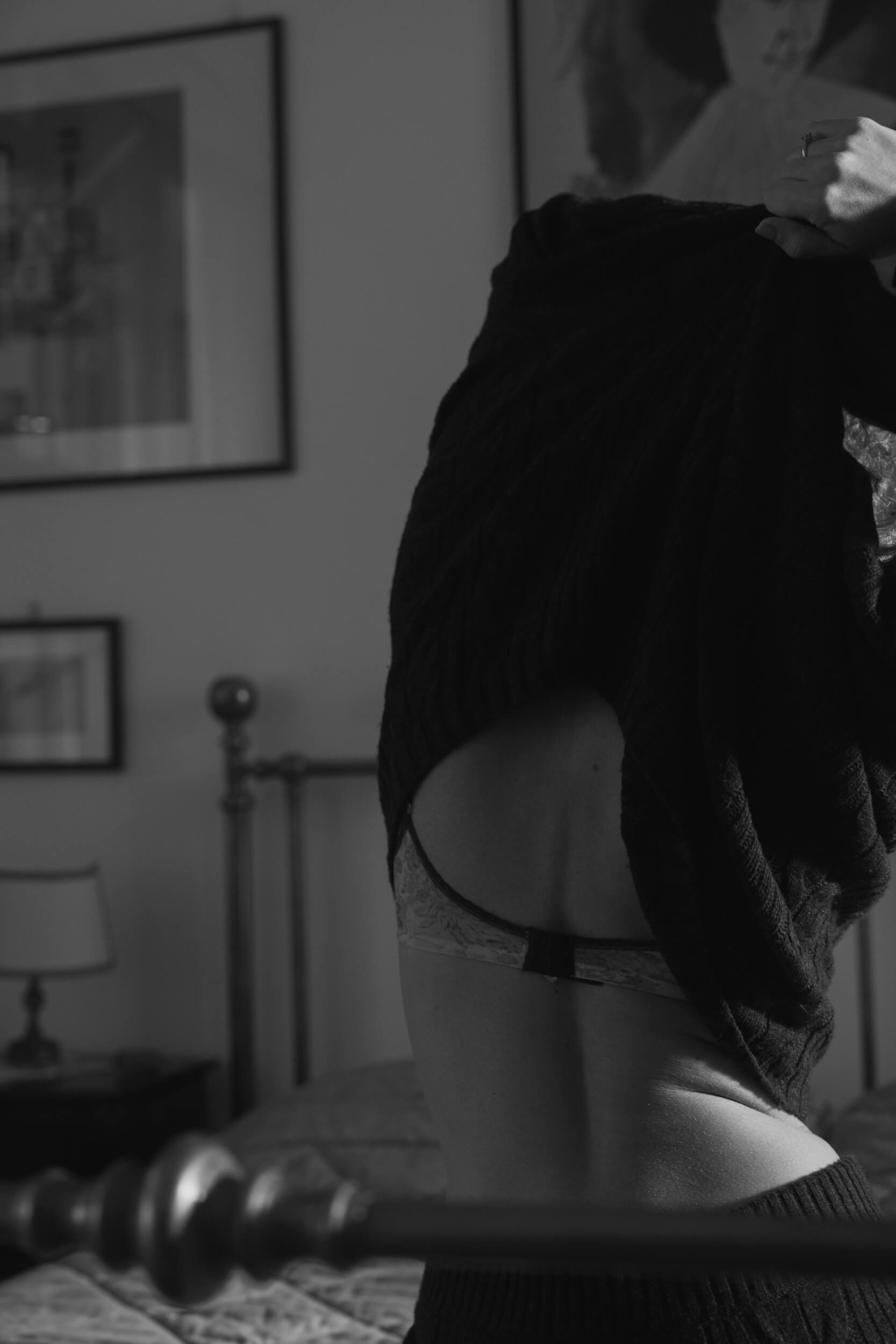

How was it working with director Sergio Rubini and the rest of the cast? Were there particularly significant moments on set?
Sergio, as an actor and director, had very clear ideas about the characters. He also loves the musicality of words, coming from cinema and theater; therefore, perhaps the biggest challenge was getting into his mindset and understanding the precise idea he had of the character of Fanny.
Sometimes, there were complex 19th-century words to pronounce, and my tendency was to “throw them away,” as they say in the industry, but he would tell me, “Nooo! This word, if it’s written, has a reason!” [laughs]. That was a small gap to bridge every time, to give royalty to the word, an importance I rightly recognized and understood even by watching the series.
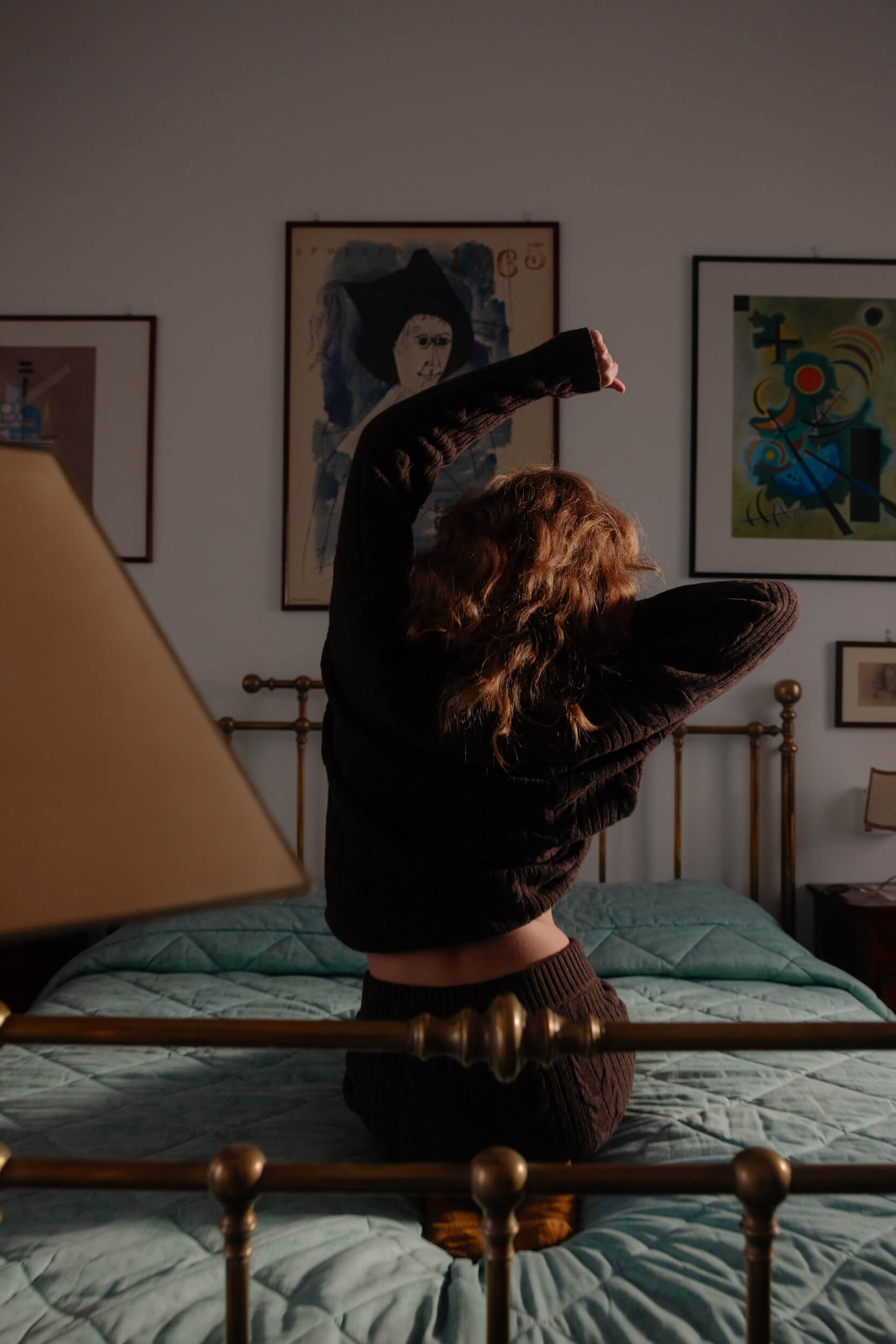
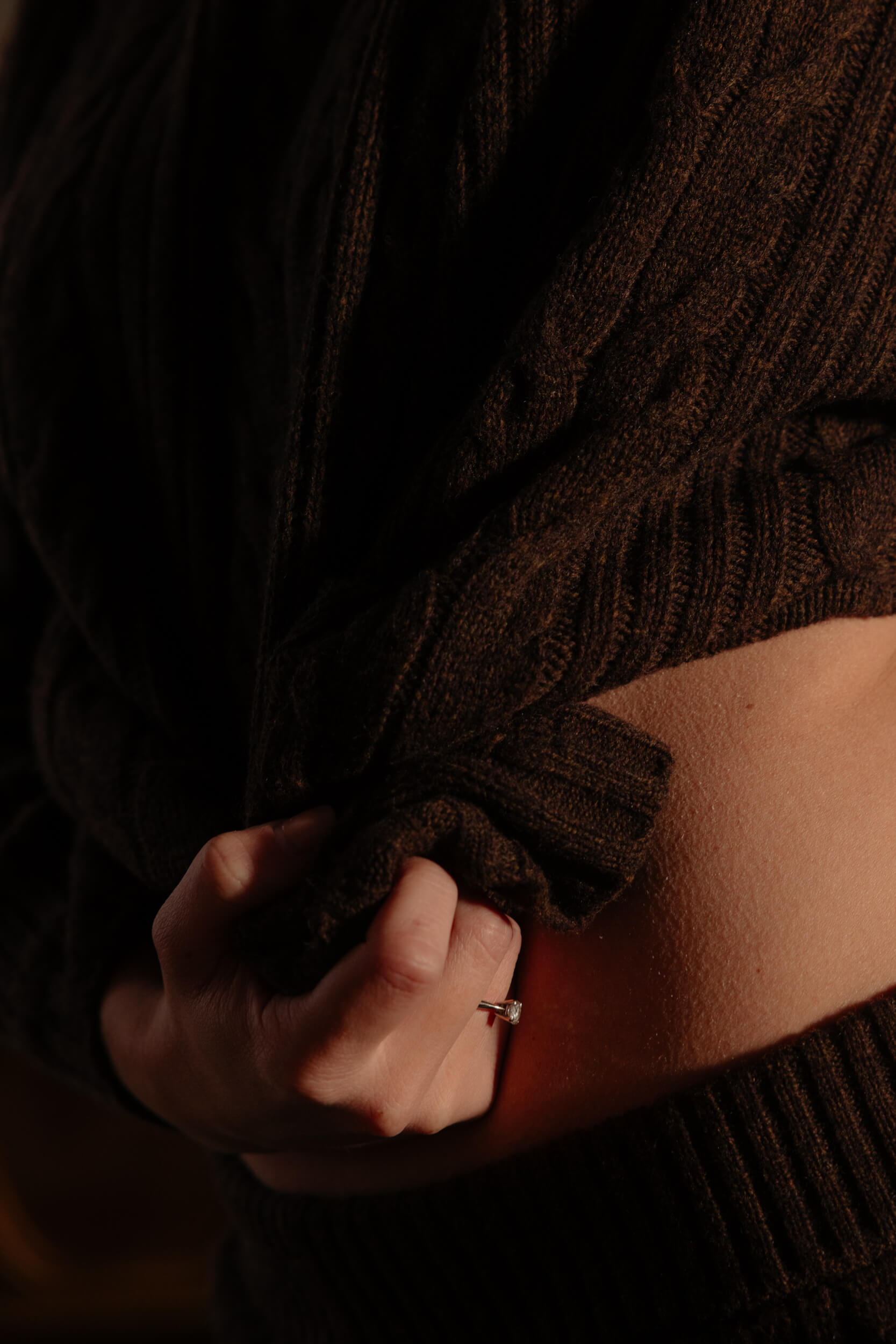

“Leopardi” is a miniseries that explores deep themes like love, solitude, and poetry. Which of these did you “feel” the most during filming?
Certainly, the characters involved us, and there was always something each of us took home. More than solitude, I would say almost nostalgia, melancholy, even for the character of Fanny, whom I grew fond of. As Tolstoy says, melancholy is the desire to desire, fundamental, therefore, just as much as the poetry of places. It was an itinerant project; we filmed a lot in the Marche, but also in Naples and Mantua, in very special and poetic places that accompanied us and catapulted us into another dimension. Then there was the poetry of the meticulously researched costumes by the great Maurizio Millenotti, an Oscar-nominated professional.
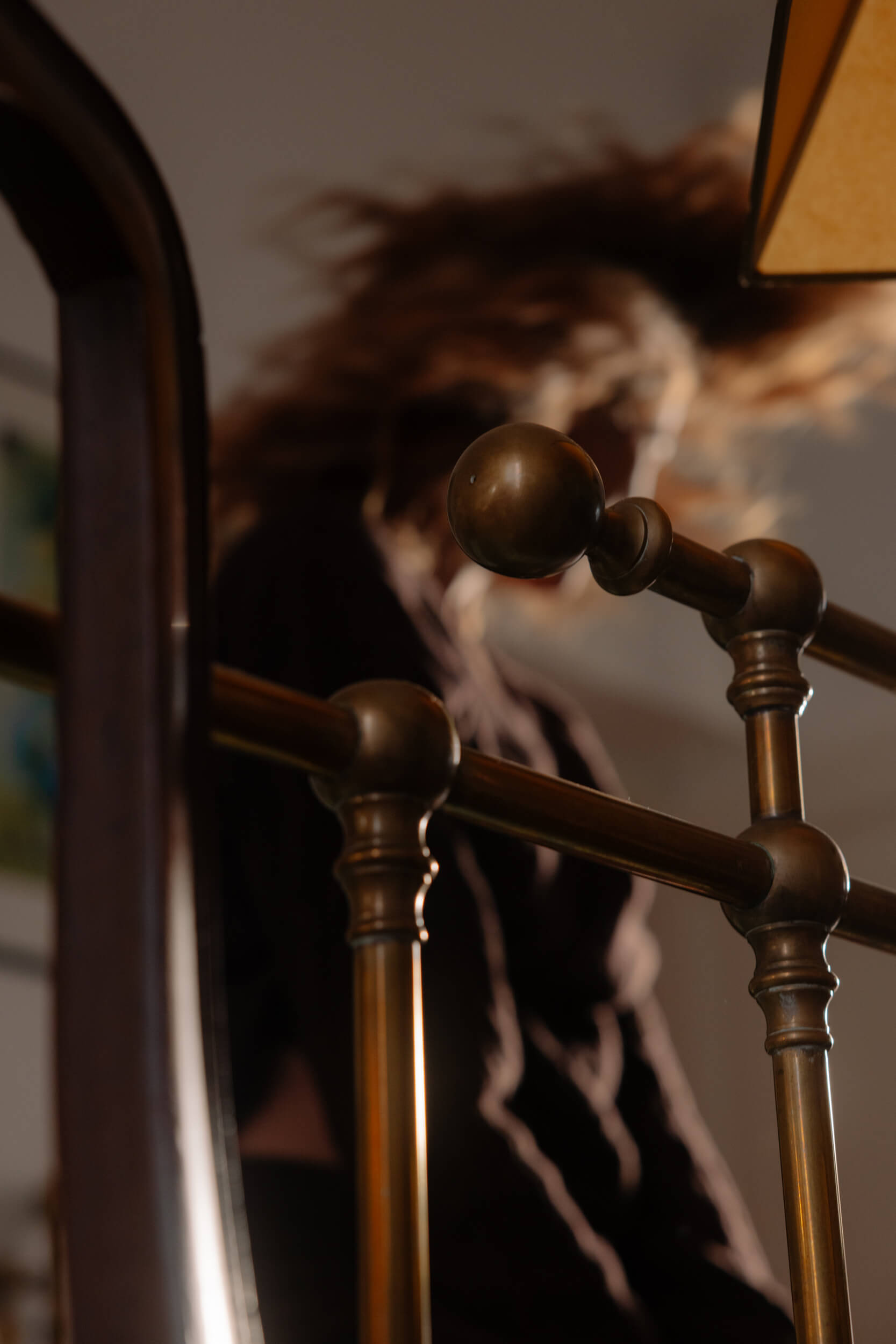
“As Tolstoy says, melancholy is the desire to desire, therefore fundamental…”
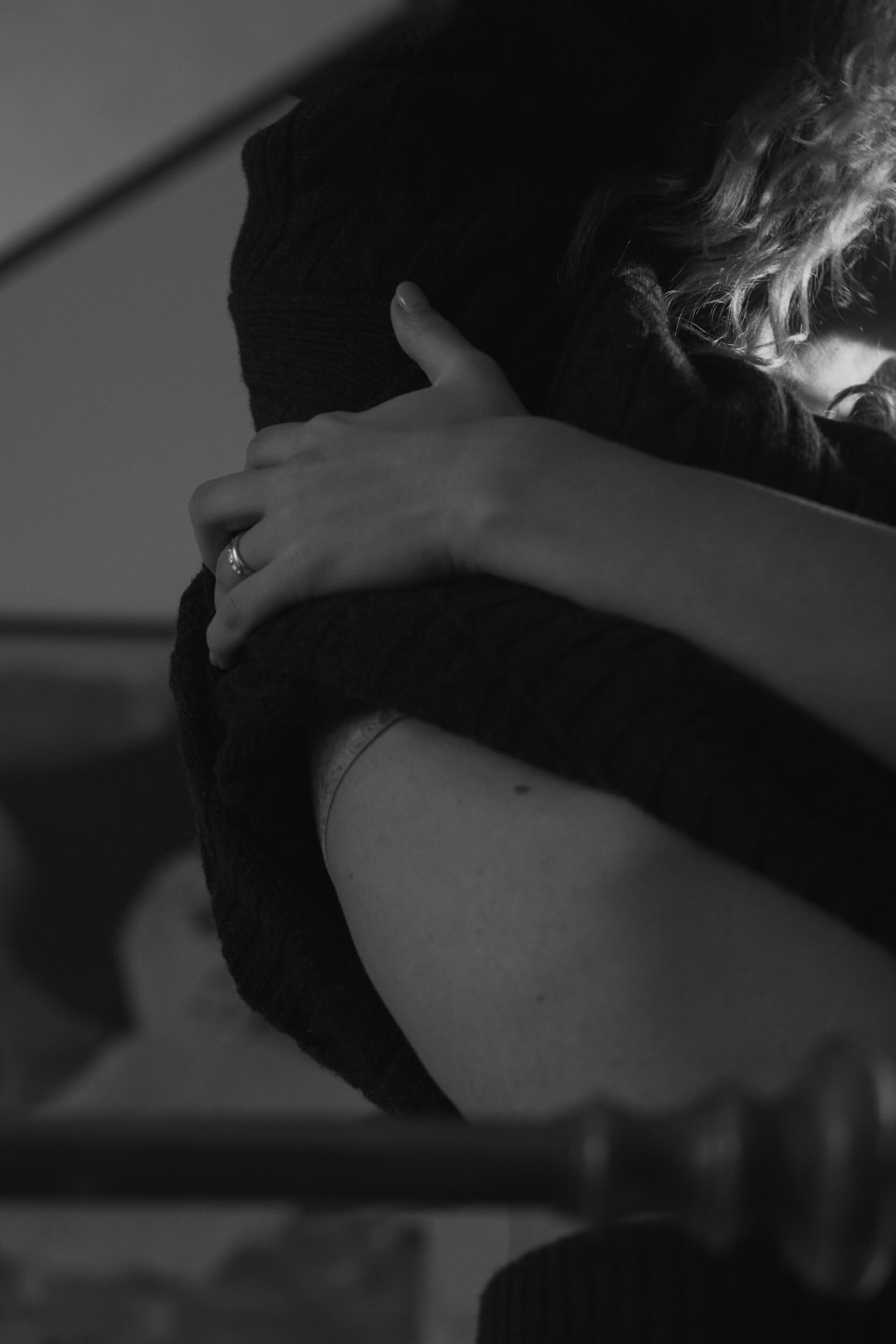
Do you think the contemporary audience can find connections between Leopardi’s figure and events and today’s society and world? If so, what are they?
Certainly. In many ways, Leopardi was farsighted. Even in his way of doing politics, he was interested in the individual and the individual’s feelings rather than the masses, and he was very skeptical about industries, saying, “We must be careful because sooner or later they will govern us,” so he cared about people in this sense too. Today, we find ourselves in this dimension because we talk a lot about artificial intelligence, which, on one side, can help us, but on the other, it can be our ruin.
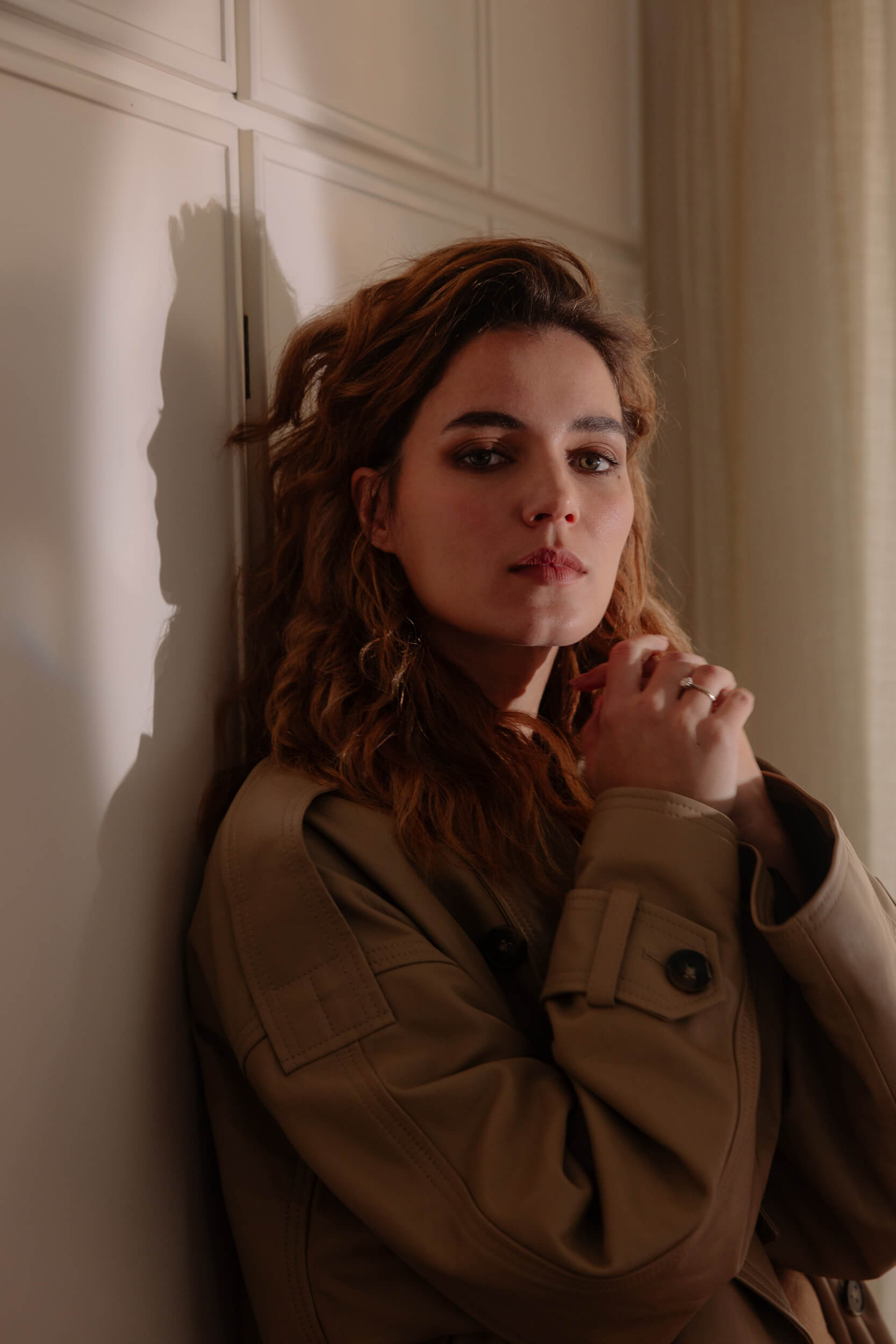
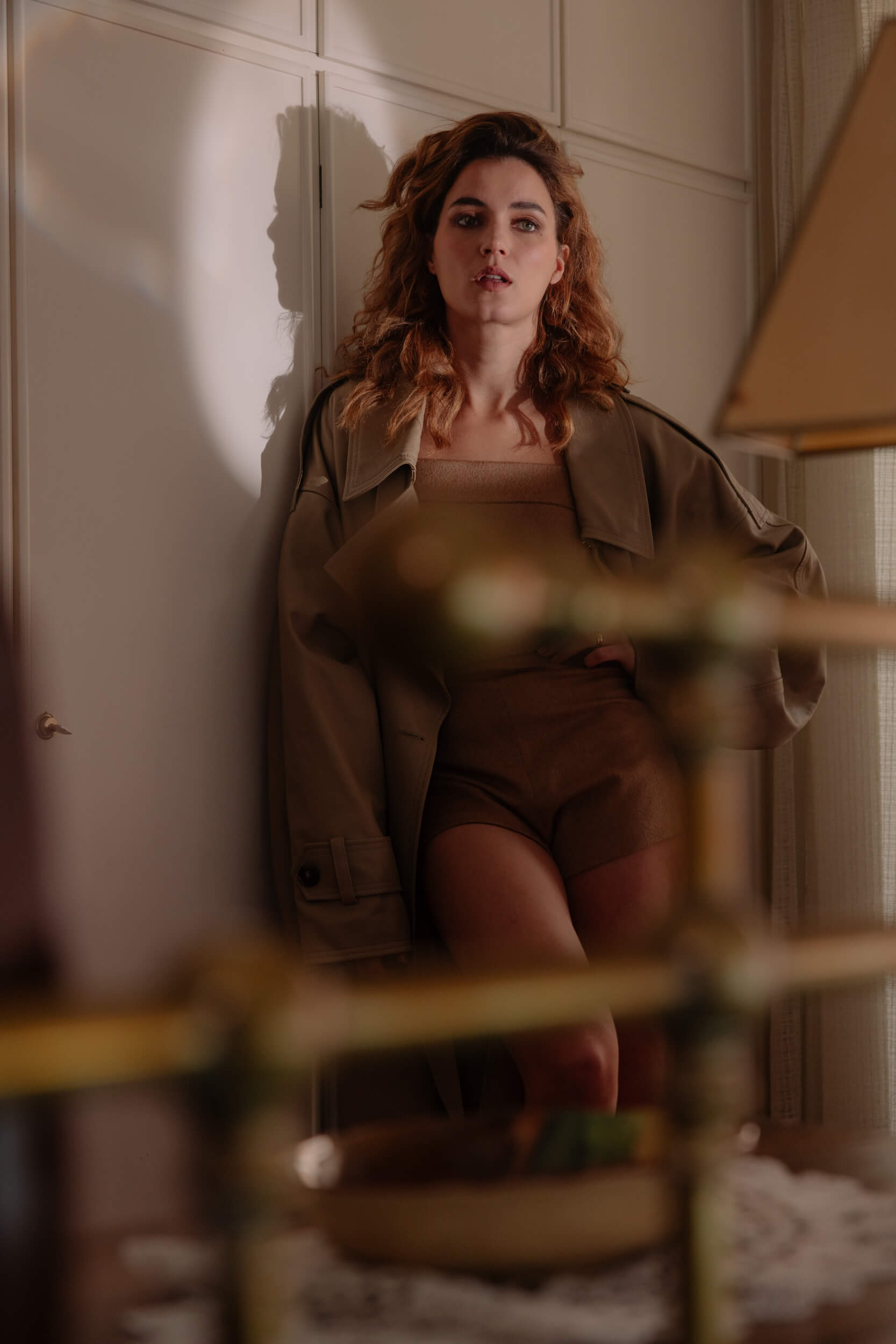
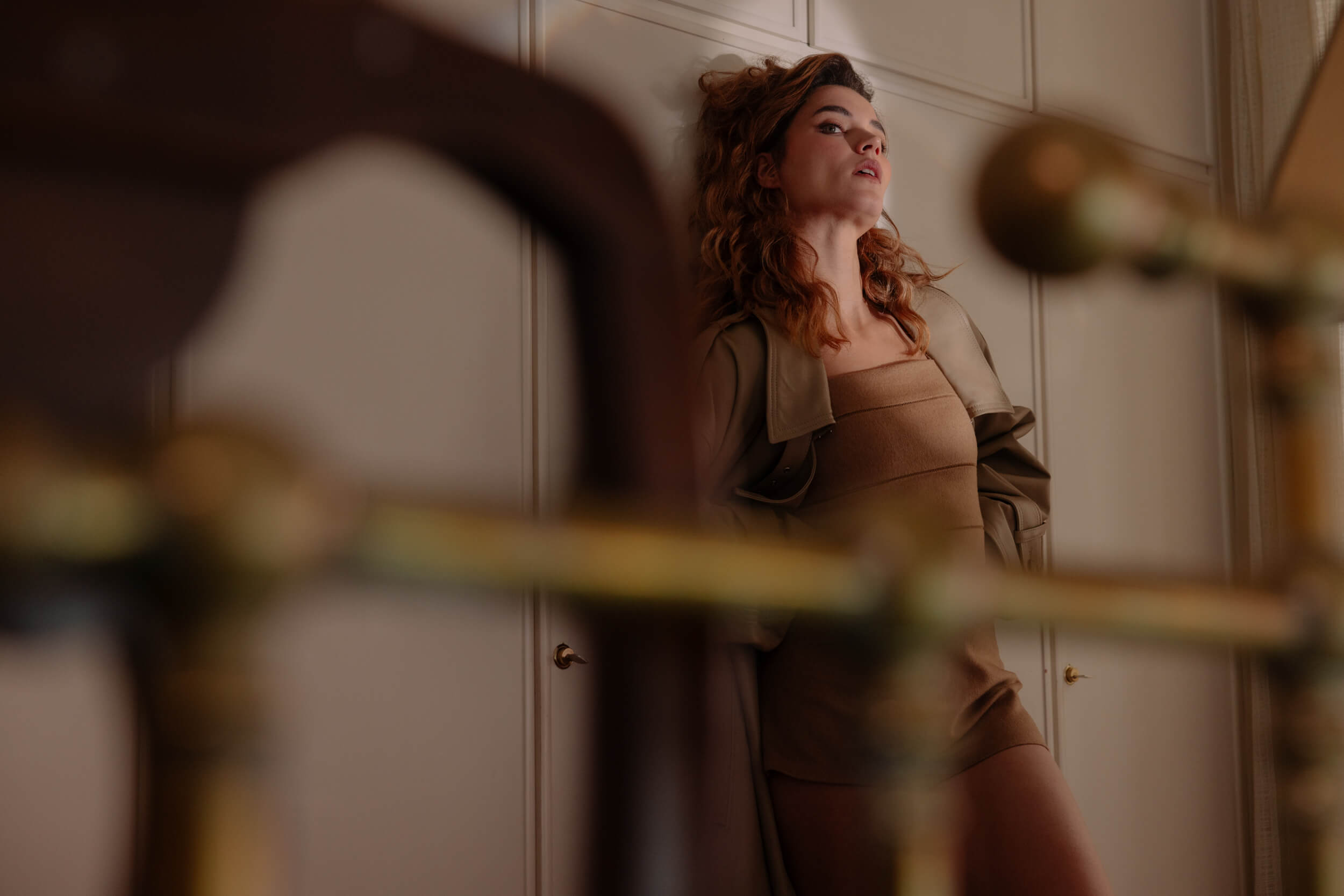
The most useful advice you received on set?
To give importance to words, as I mentioned earlier, starting from their sound and musicality. Never take anything for granted but enjoy every word because the project required it.
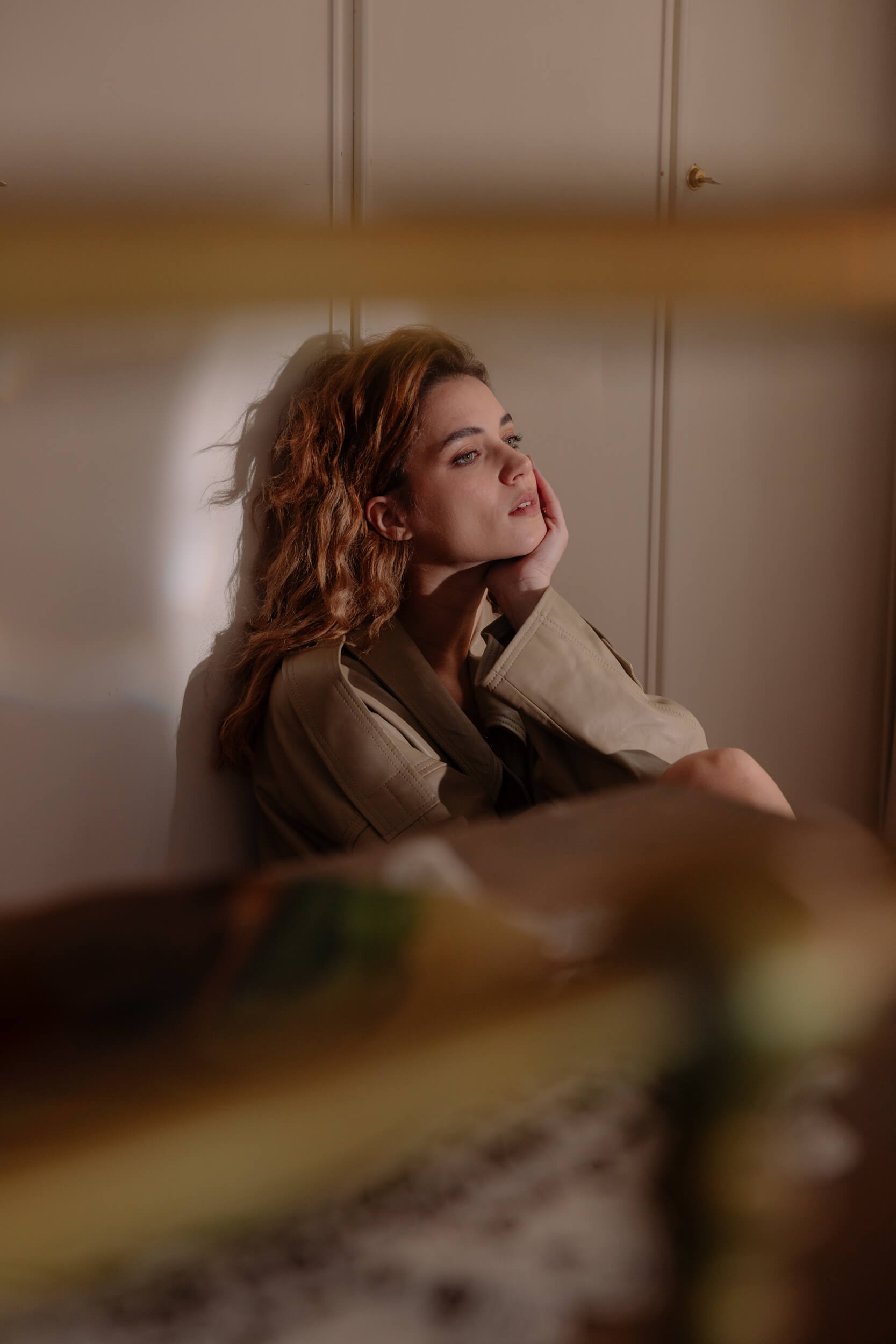
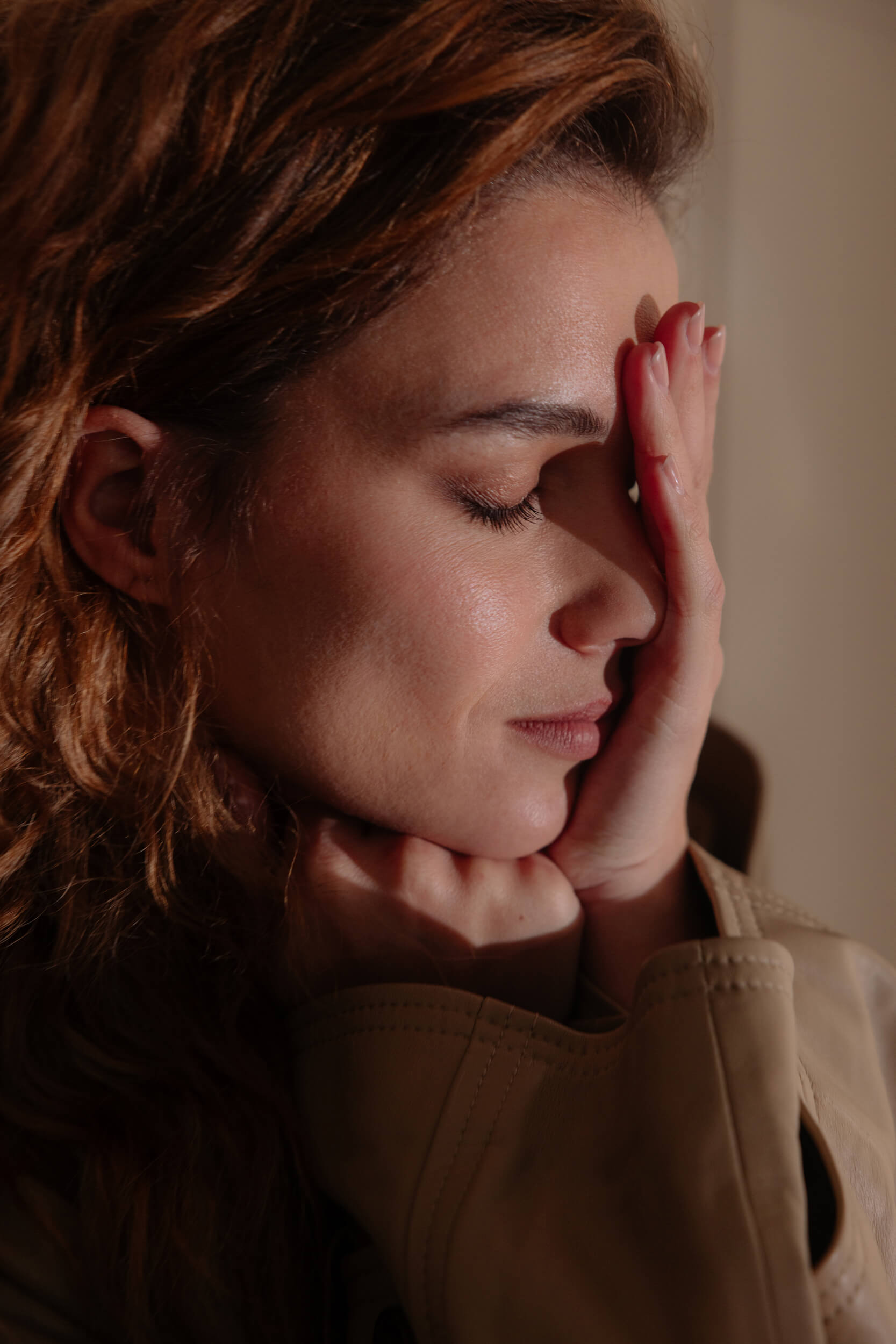
To date, what would you say has been the most gratifying element of your experience as Fanny?
I have learned to have a broader perspective on what happens around me, even the seemingly secondary things. Not to be focused only on the interlocutor in front of me but to always live in a state of openness to what moves around me.
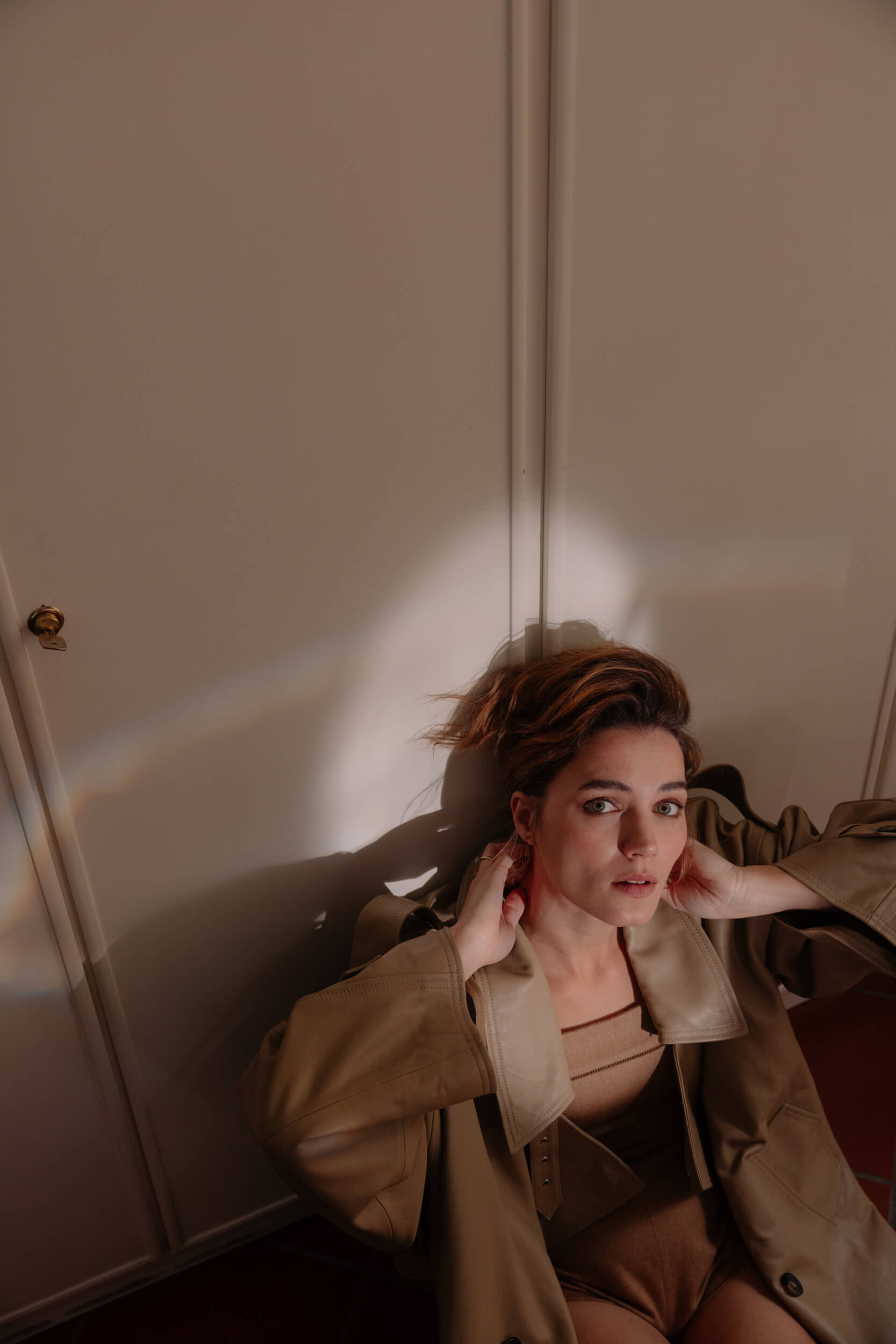
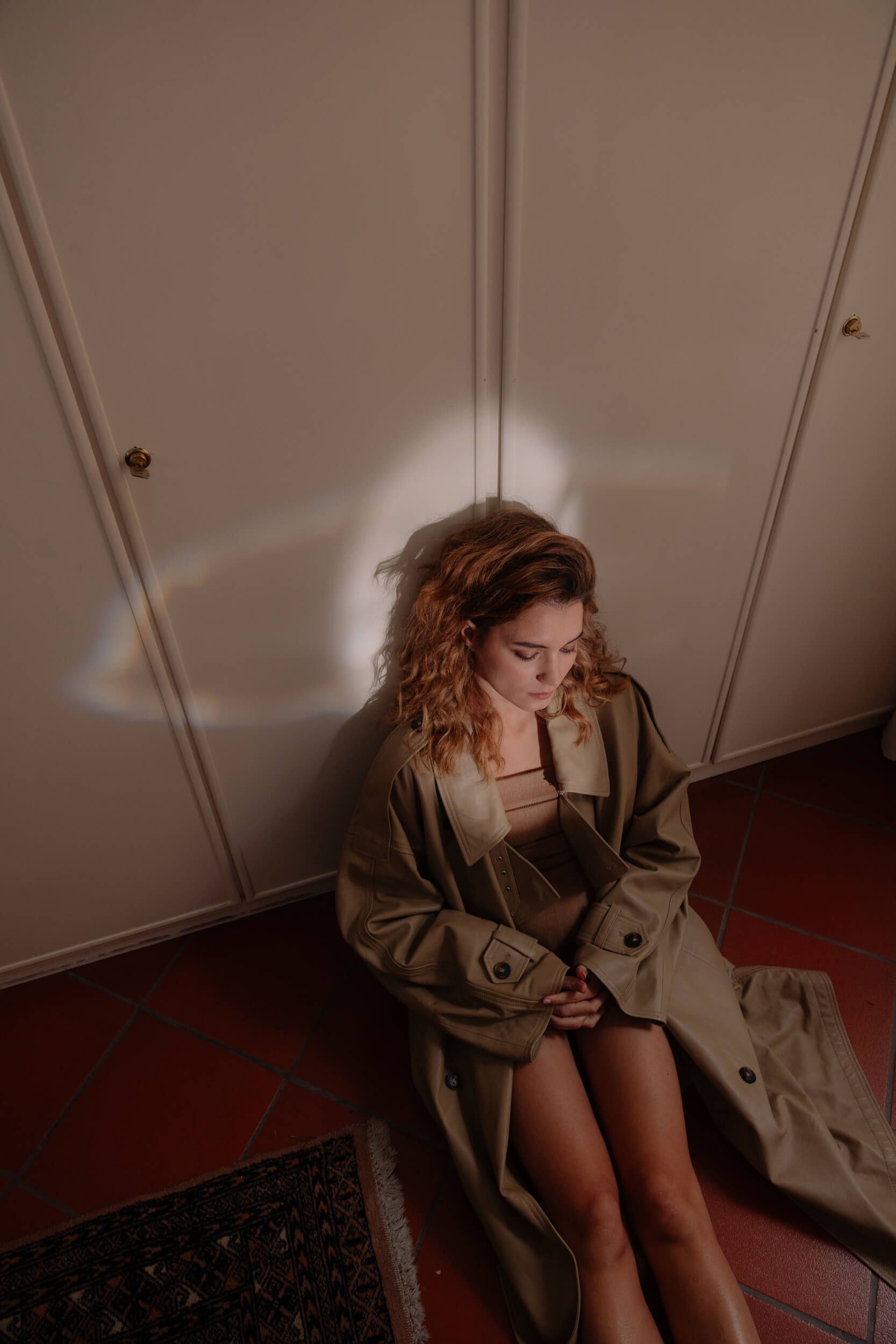
I think raising your antennas and always having open eyes and ears is crucial to truly being in the present moment.
Is there a poem or a verse from a Leopardi poem that represents this period of your life?
I really love the poem “Il sabato del villaggio” (The Village Saturday).
I have always liked it, but in this moment of life, it is perhaps even more important because this poem talks about the beauty of anticipation. When Sunday comes, and the young girl prepares to celebrate it, Sunday is already sad because the next day is Monday. This can be a reminder for my life right now because I no longer enjoy the preparation moment, but I want it “all at once.” So I think “Il sabato del villaggio” can be a beautiful reminder to enjoy the anticipation, whether it is baking a cake with my daughter or preparing for a birthday, to enjoy the pleasure of waiting…
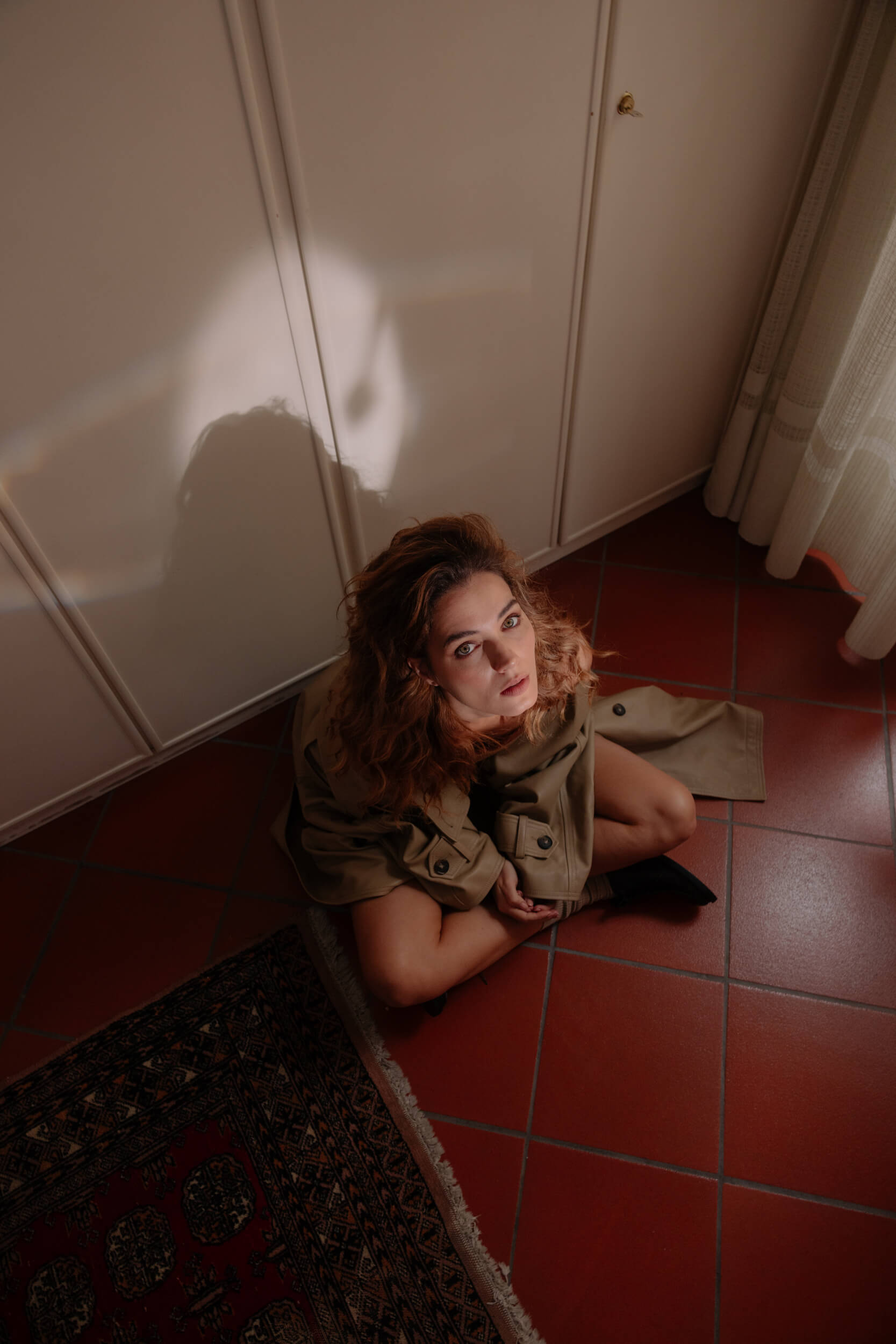
“The pleasure of waiting”
Which is sometimes greater than the event itself.
Switching to another set, in the new season of “Un passo dal cielo” (One Step from Heaven), you once again play the policewoman Manuela Nappi. What are the new developments for your character, and what can we expect from her journey this season?
We can expect a woman who has understood her place in the world, the tile she covers, and is therefore ready for the next step: helping those who have not yet discovered it. She will do this especially for Nathan, played by Marco Rossetti, helping him reconcile with his story to prepare him to open his heart to others.
In this season, Manuela is a character on a mission, solving cases through proxemics, understanding the non-verbal language of others, as well as helping Nathan and her brother during a personal difficulty. The protagonist is also nature, the wonderful landscapes of the Venetian Dolomites that we see.
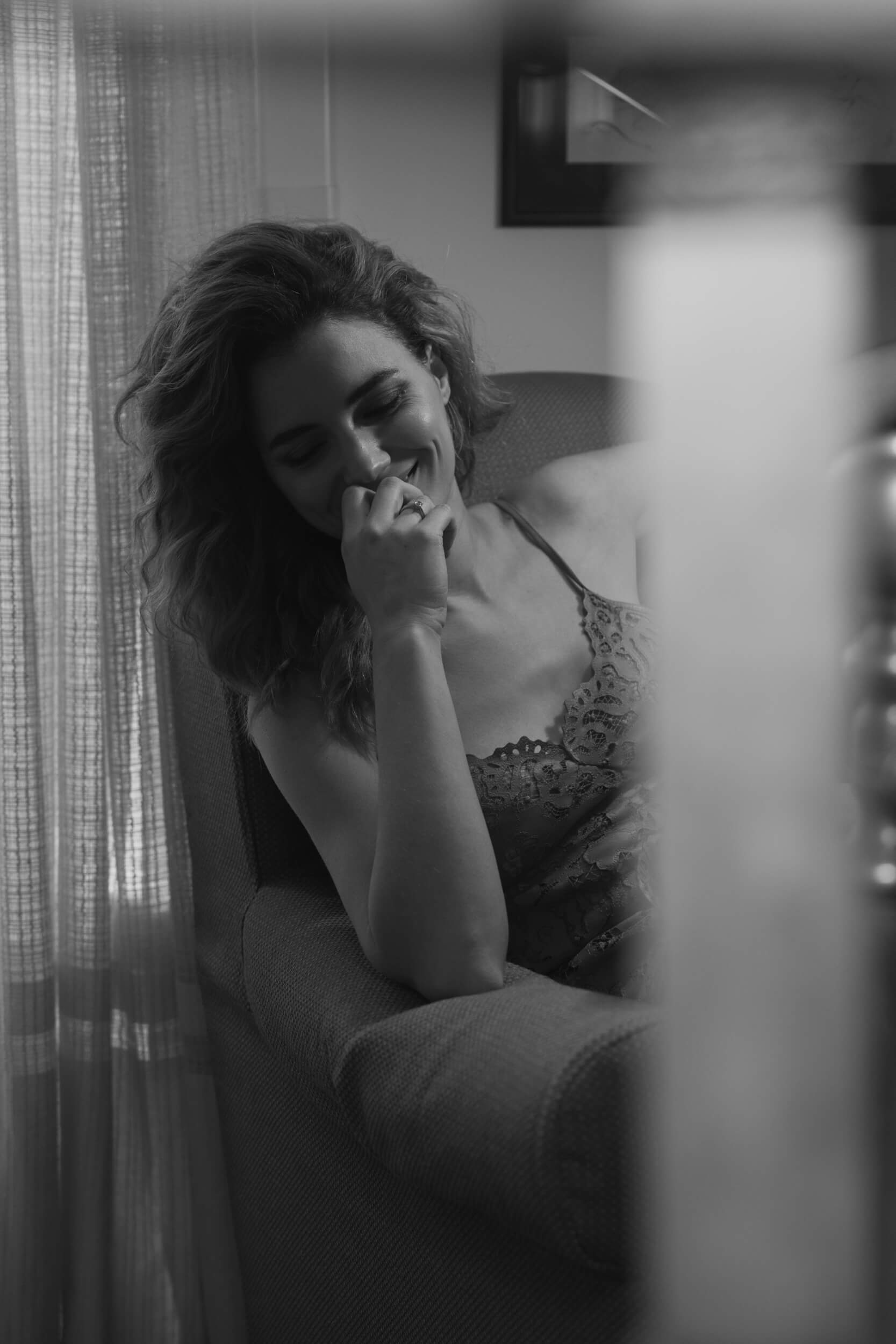
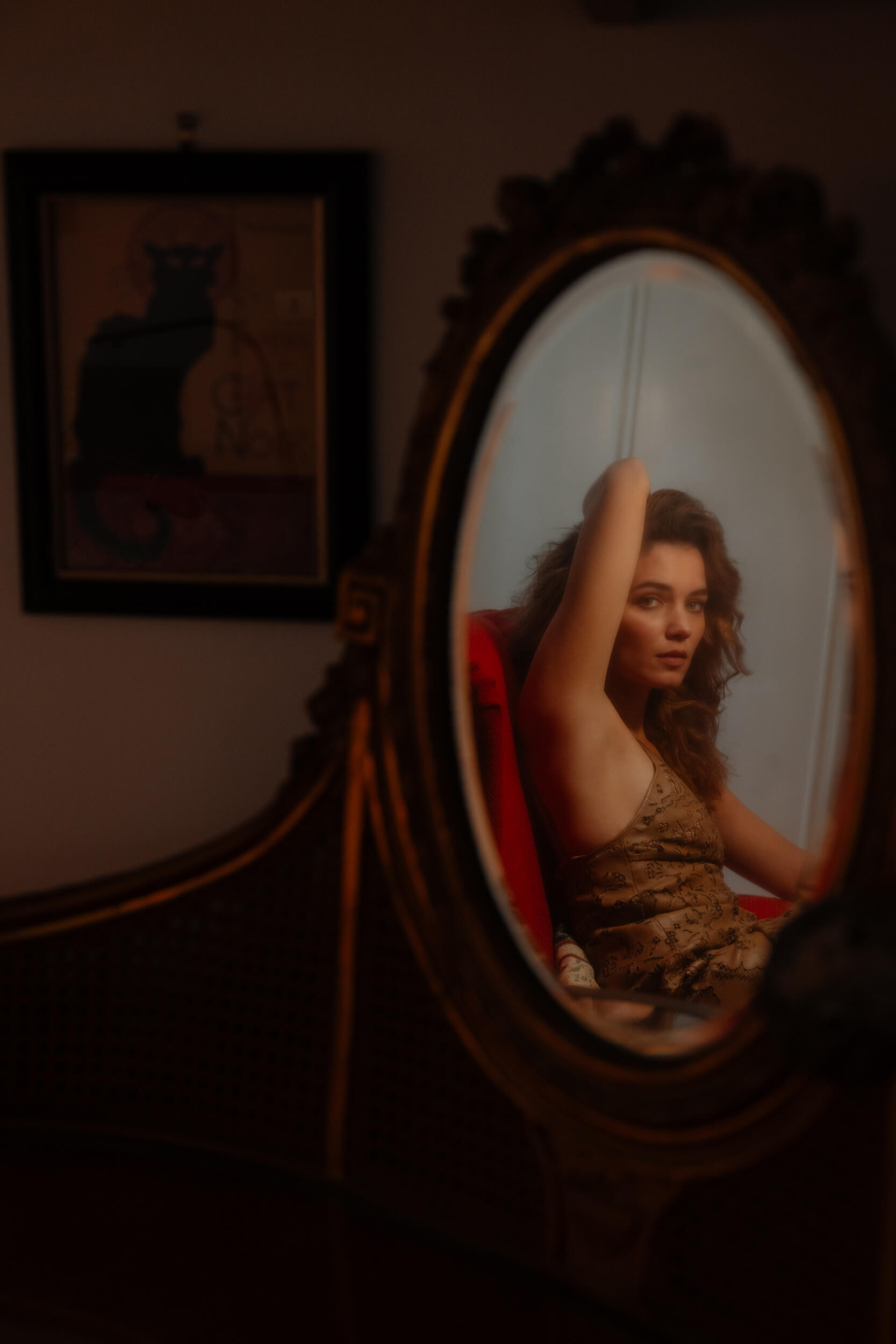
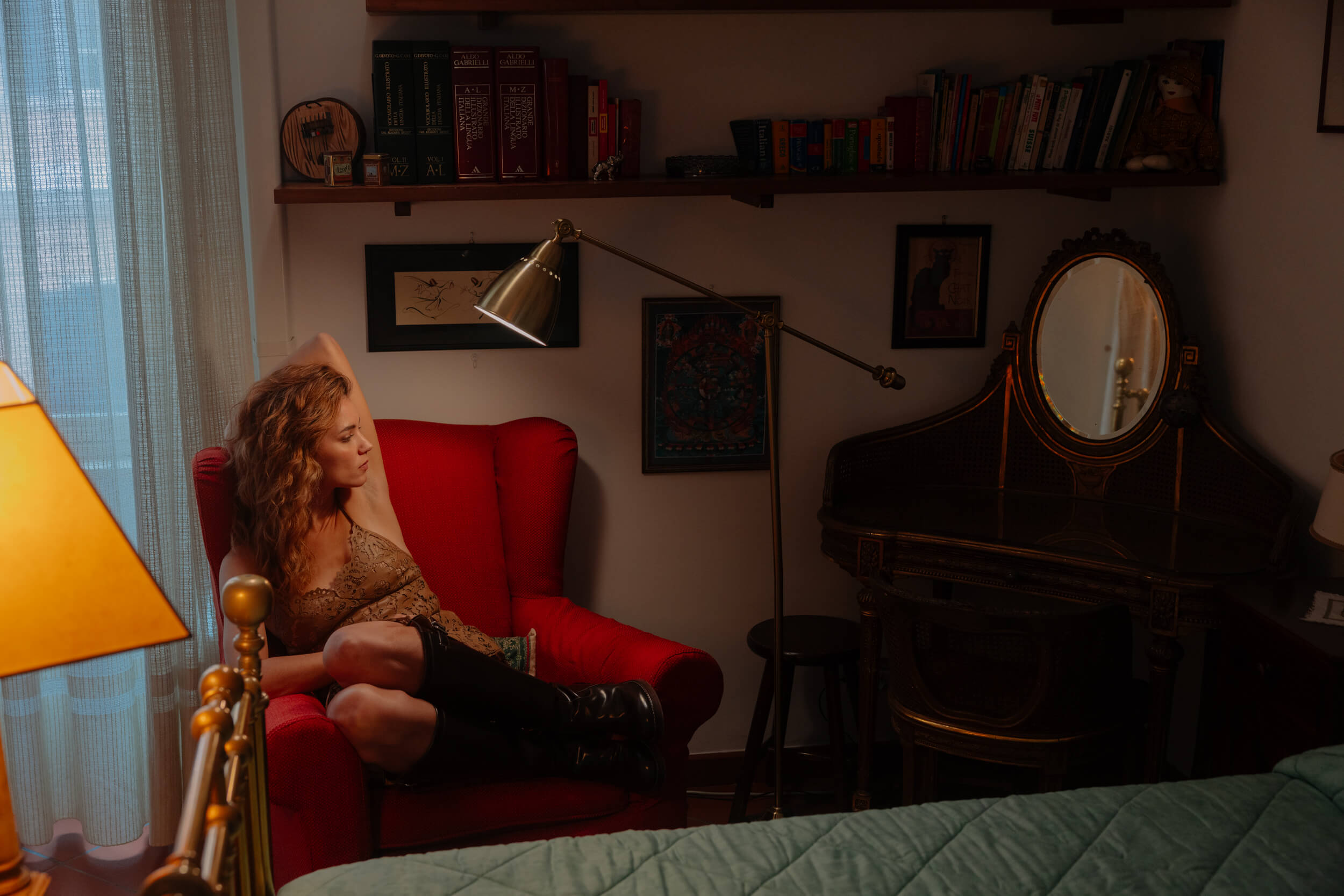
What is the last thing you discovered about yourself thanks to your work?
A flaw of mine is that my first approach to things is to do the “assignment” and be “the eldest daughter”, the first in the class, etc. I discovered that this attitude represses the most beautiful part of me. In this, acting is truly therapy, and it has made me understand that my best side comes out when I have fun and when I play. Then I bring out things I didn’t even think I could give to the characters, and that’s what I look for every time I approach a new role.
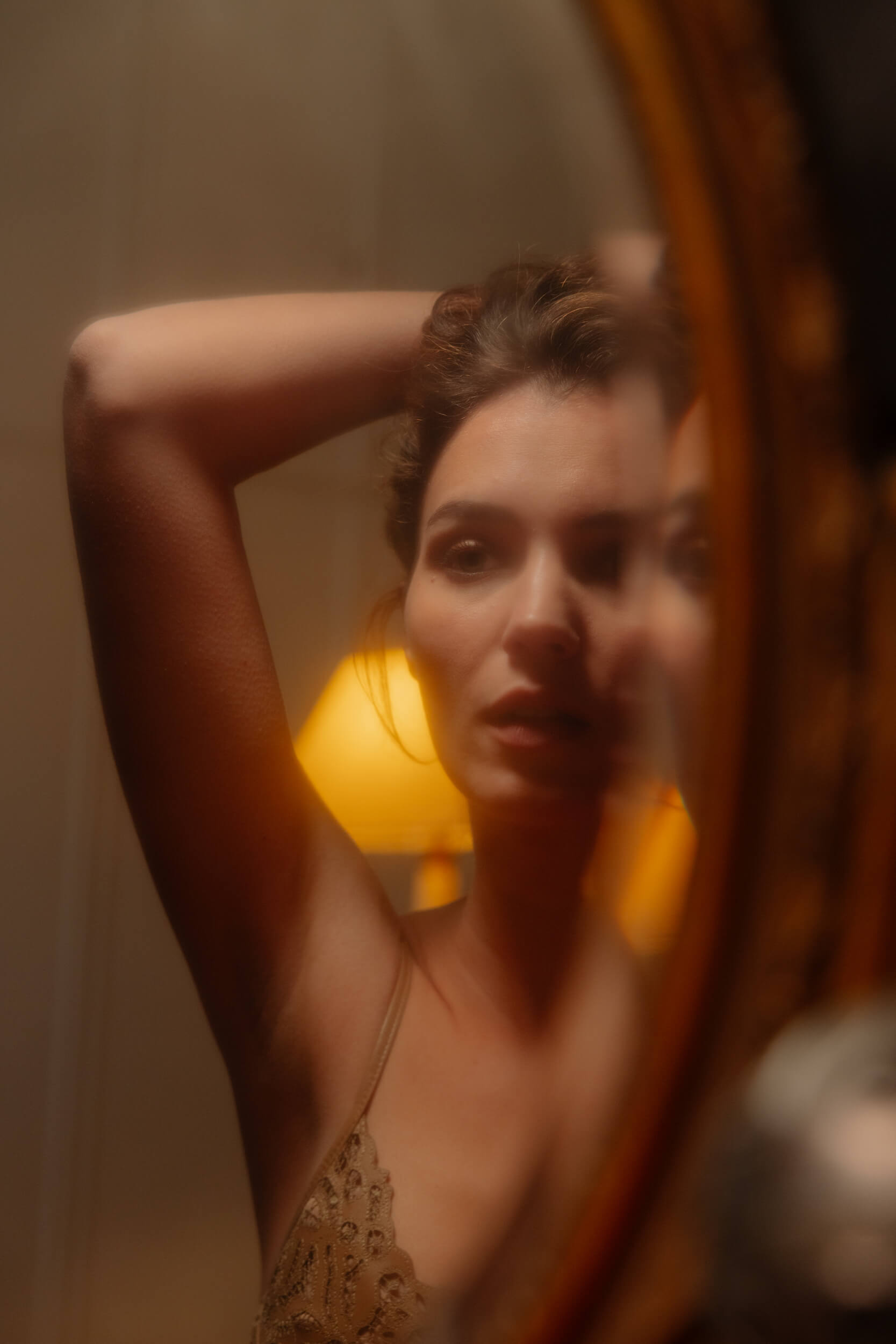
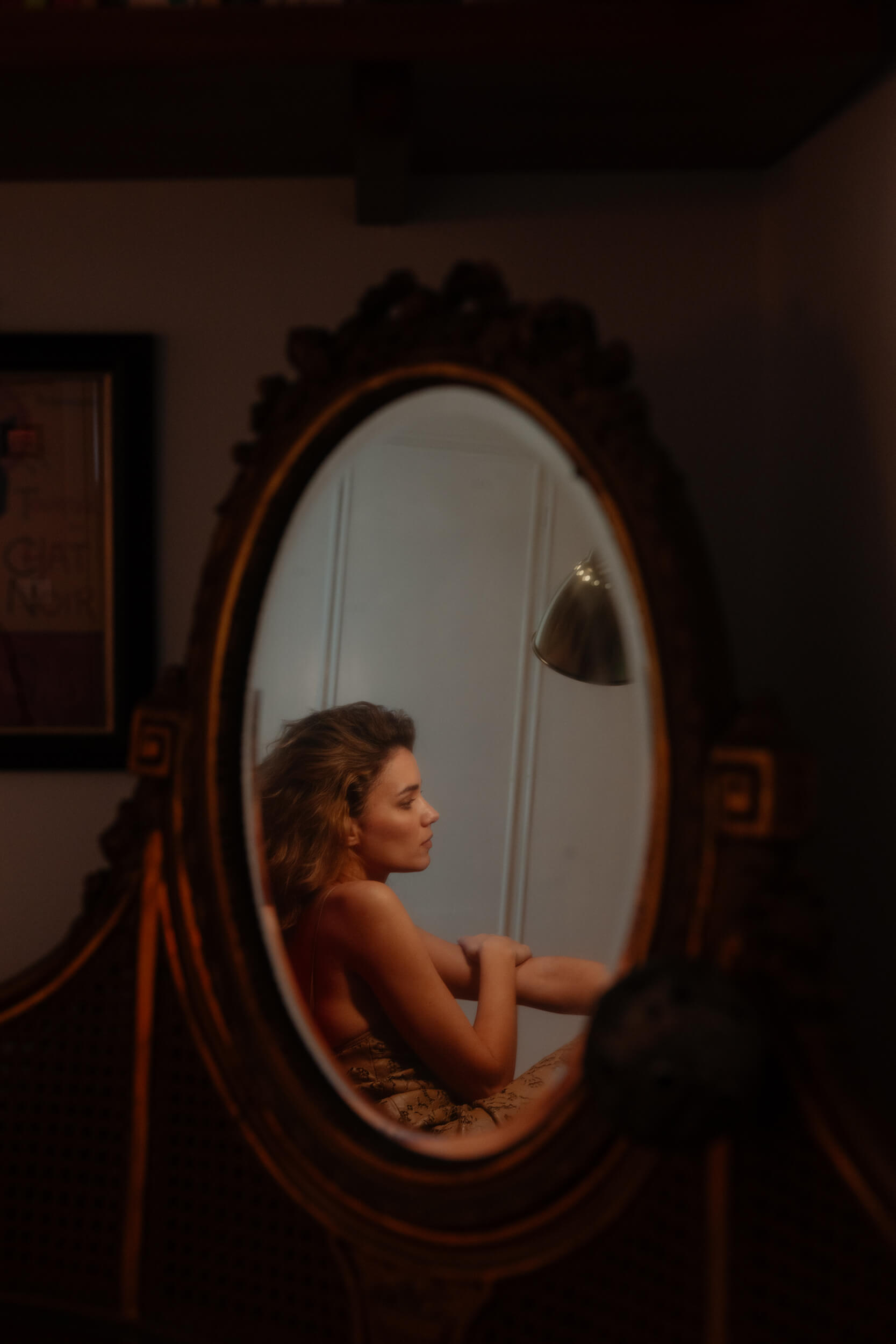
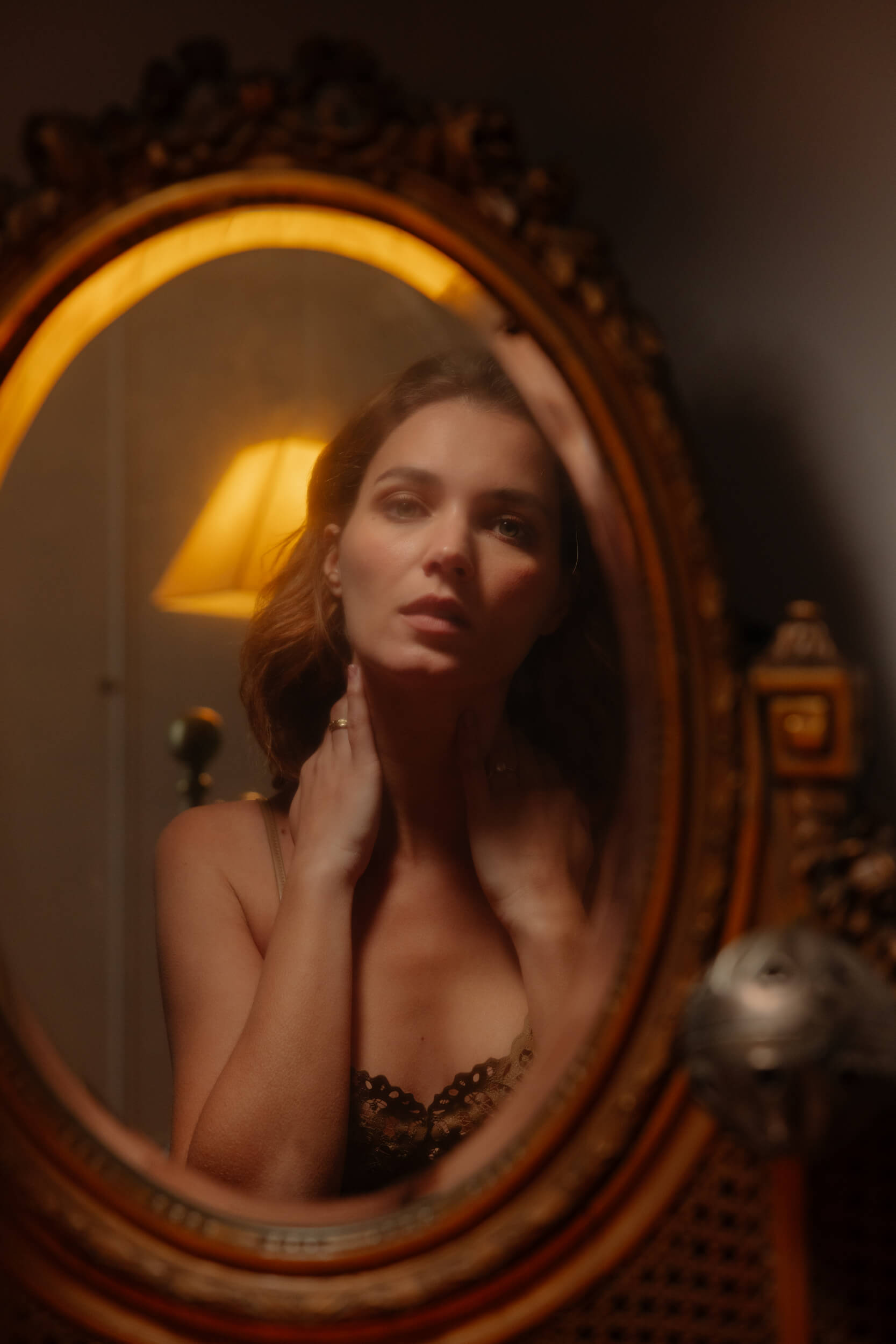
“My best side comes out when I have fun and when I play”
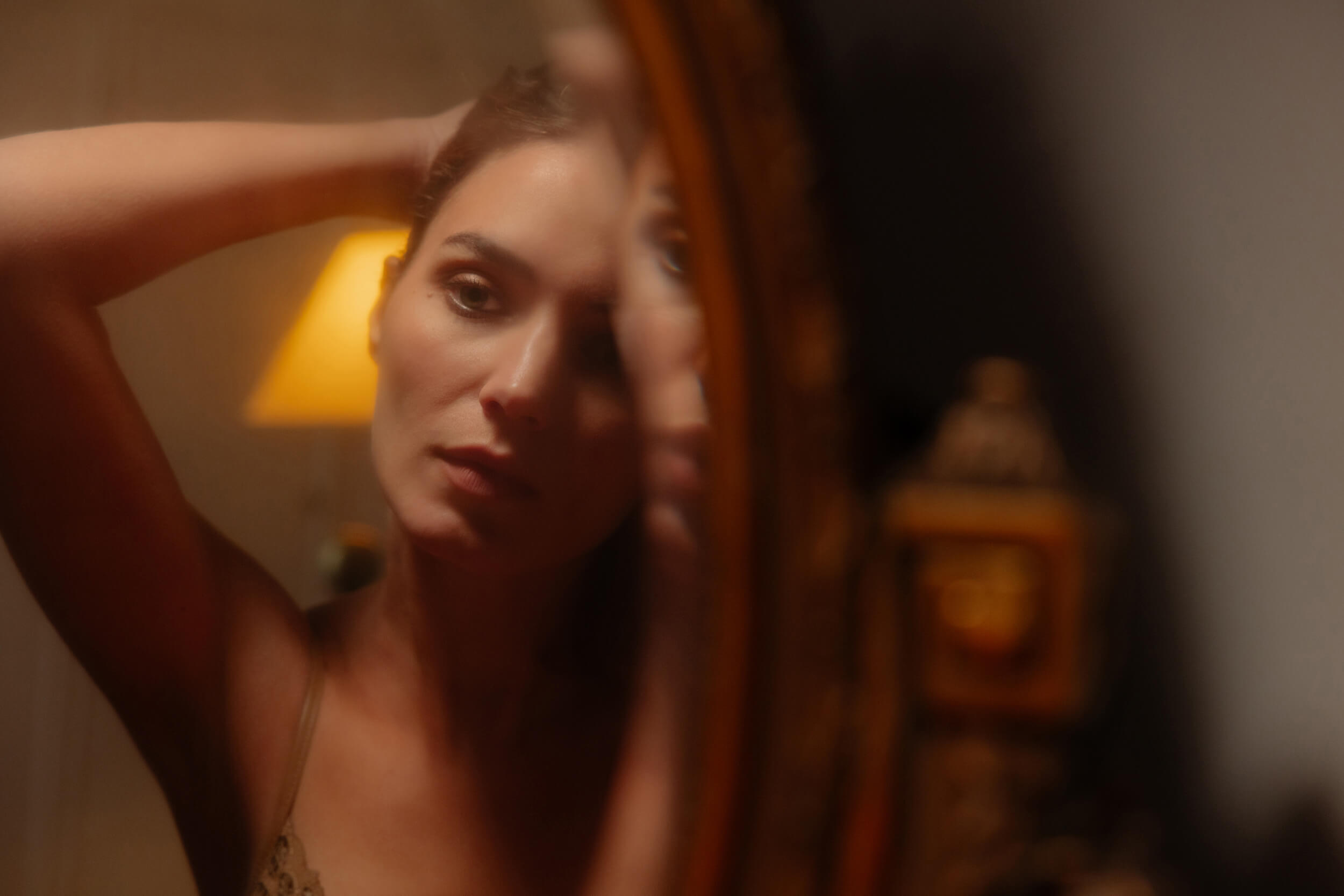
What has been your biggest act of rebellion so far?
Maybe it’s having children! [laughs] Despite all the fears the world keeps presenting to us.
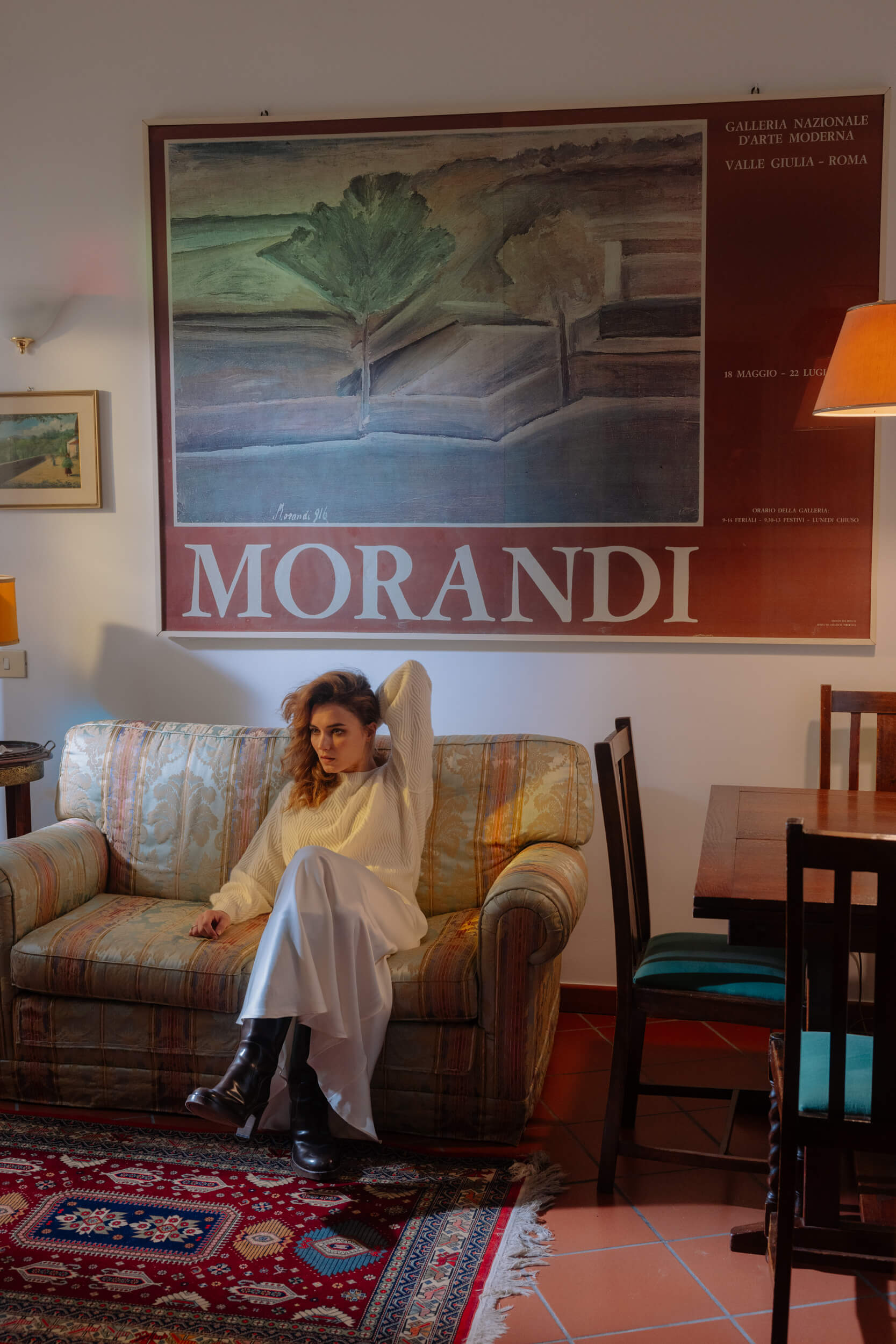
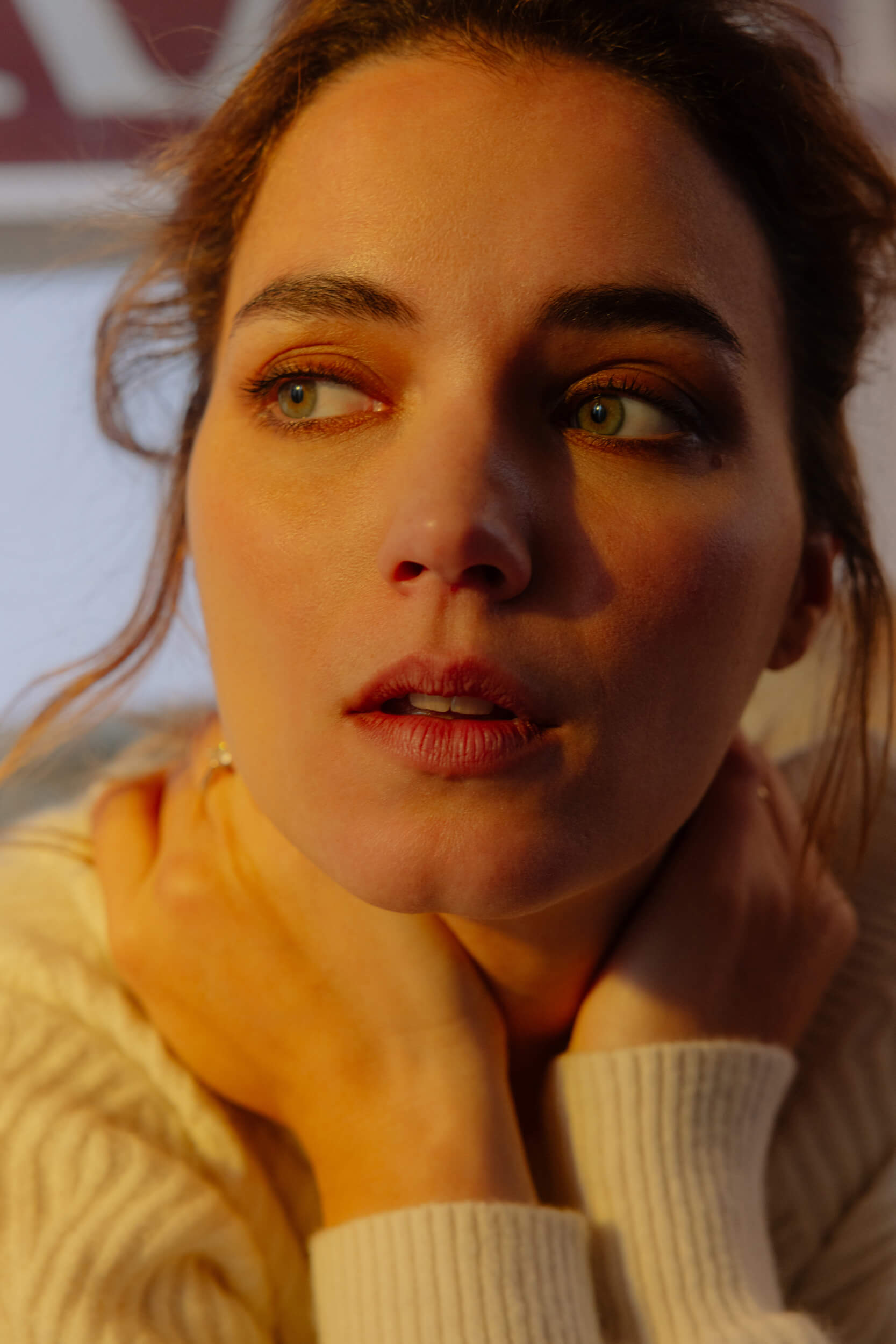
What is your greatest fear, then?
My greatest fear is not living my own story but that of others. I would like to do it for the characters I play, but then in life, I want to remain anchored to my path, my choices, and not to the influences of external models or references.
The best “fuck you” moment of your life?
Perhaps it could be another challenge for me, to be able to say it! [laughs] I sometimes get a bit fiery, but then the next second, it’s all over.
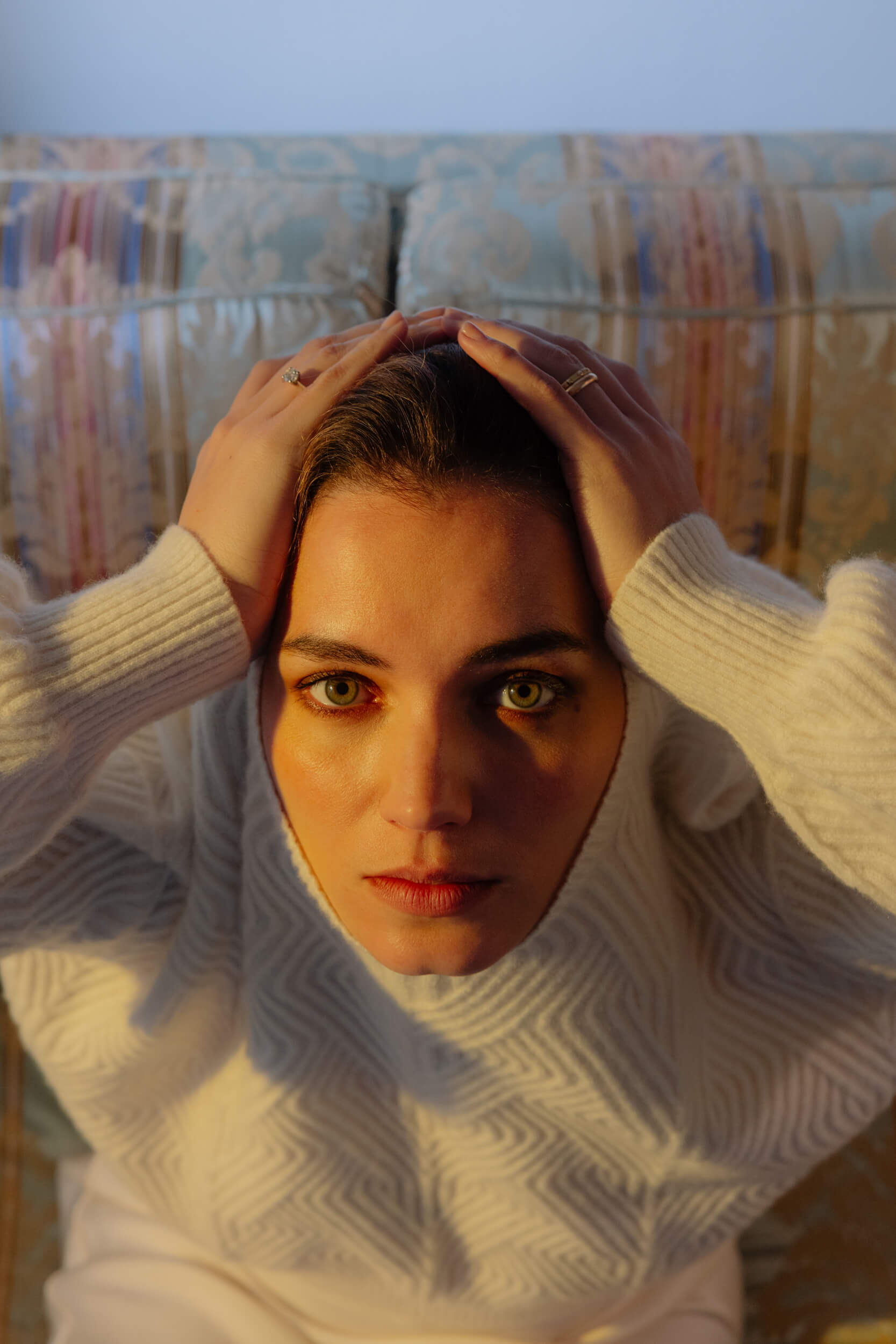
What is “home” to you?
Home, to me, is when, after a day full of commitments and work, I find myself in the evening giving my children a warm bath, who then run around the house naked, playing “catch my cheek” [laughs].
When do you feel safest? And when do you feel most confident?
Maybe I don’t think about it long enough… Probably, I feel safest and most confident when my relationships with the people around me are strong and solid. It’s nice and right to know how to be alone, but my greatest security is my husband, my friends, my parents.
Those relationships, which don’t have to be many but are warm, give me security.
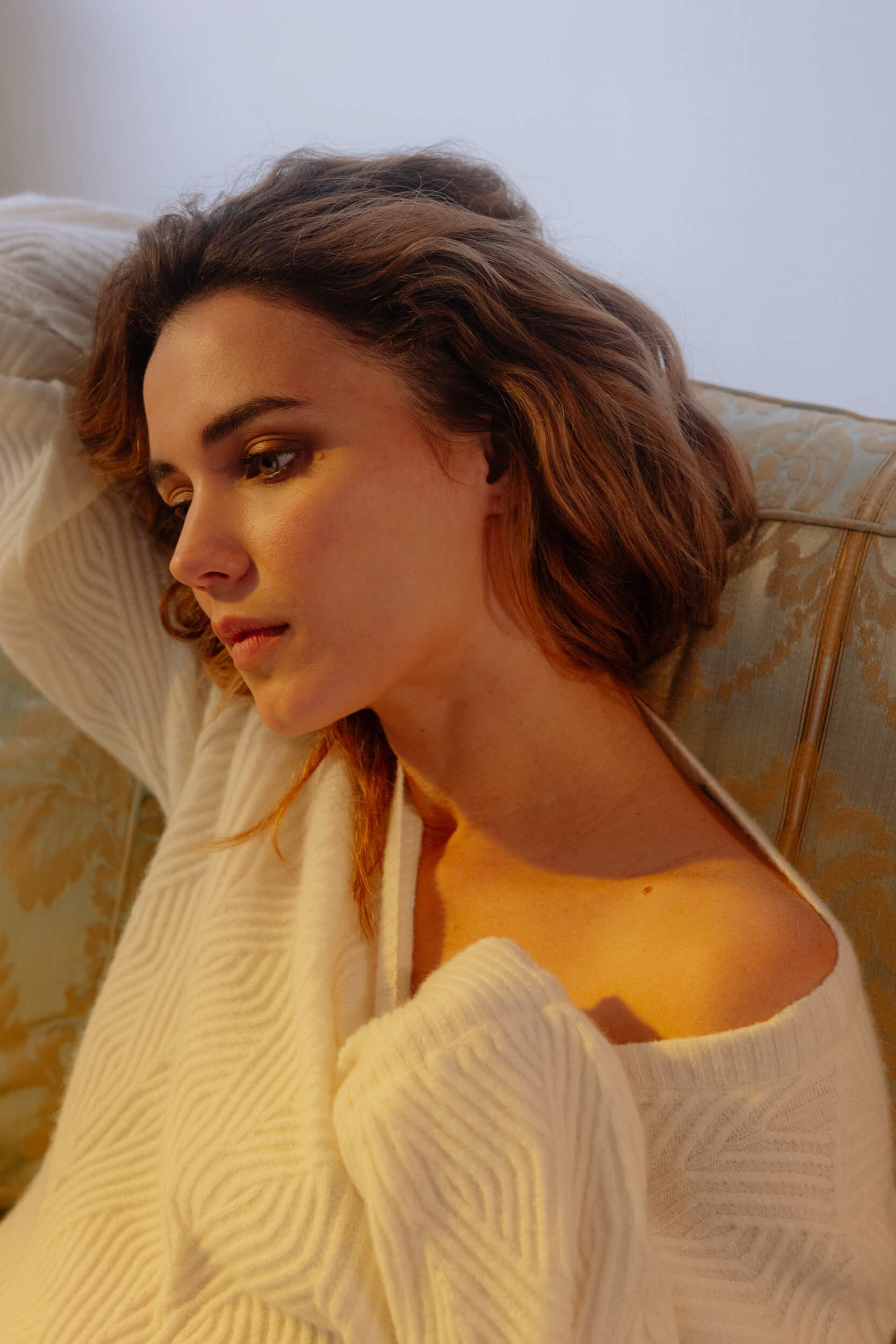
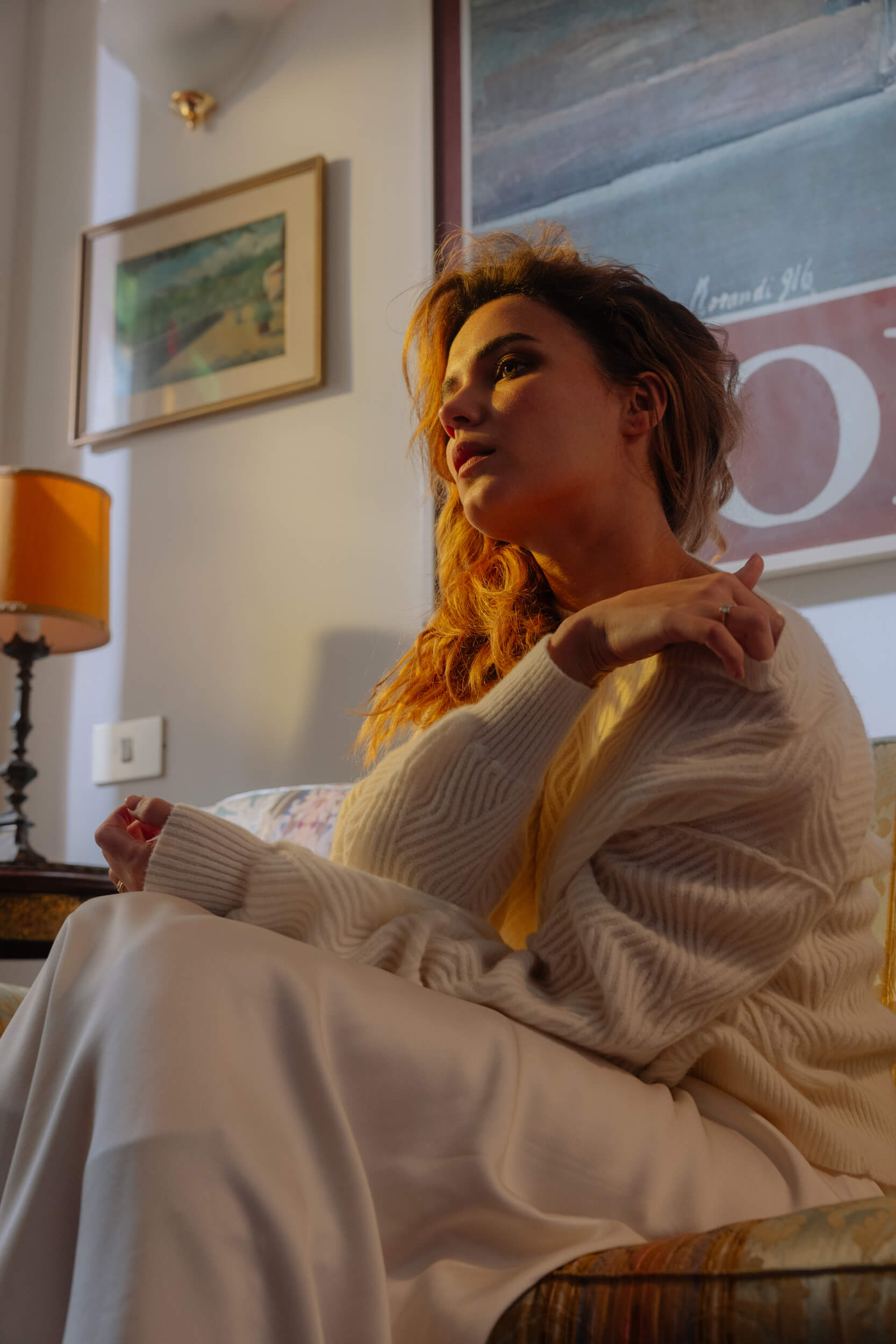
What does feeling comfortable in your skin mean to you?
It means not thinking too much and enjoying a good pasta, having confidence with your body, not fearing the passing of time but getting to know yourself more, even from within, to give importance not only to aesthetics but also to who we are inside.
What is your happy place?
My happy place is Sicily, where I go whenever I can. Now we have also opened a farm, so my relationship with the land is revitalizing after many years. You know, I grew up with a farmer father who took me and my brother to harvest the fruits, something that, over time, in the need for a sort of emancipation, I almost denied. Now, I have returned to have a different perspective because I recognize that I am who I am also thanks to the years of growing up in contact with my island.
There, time has a different value.
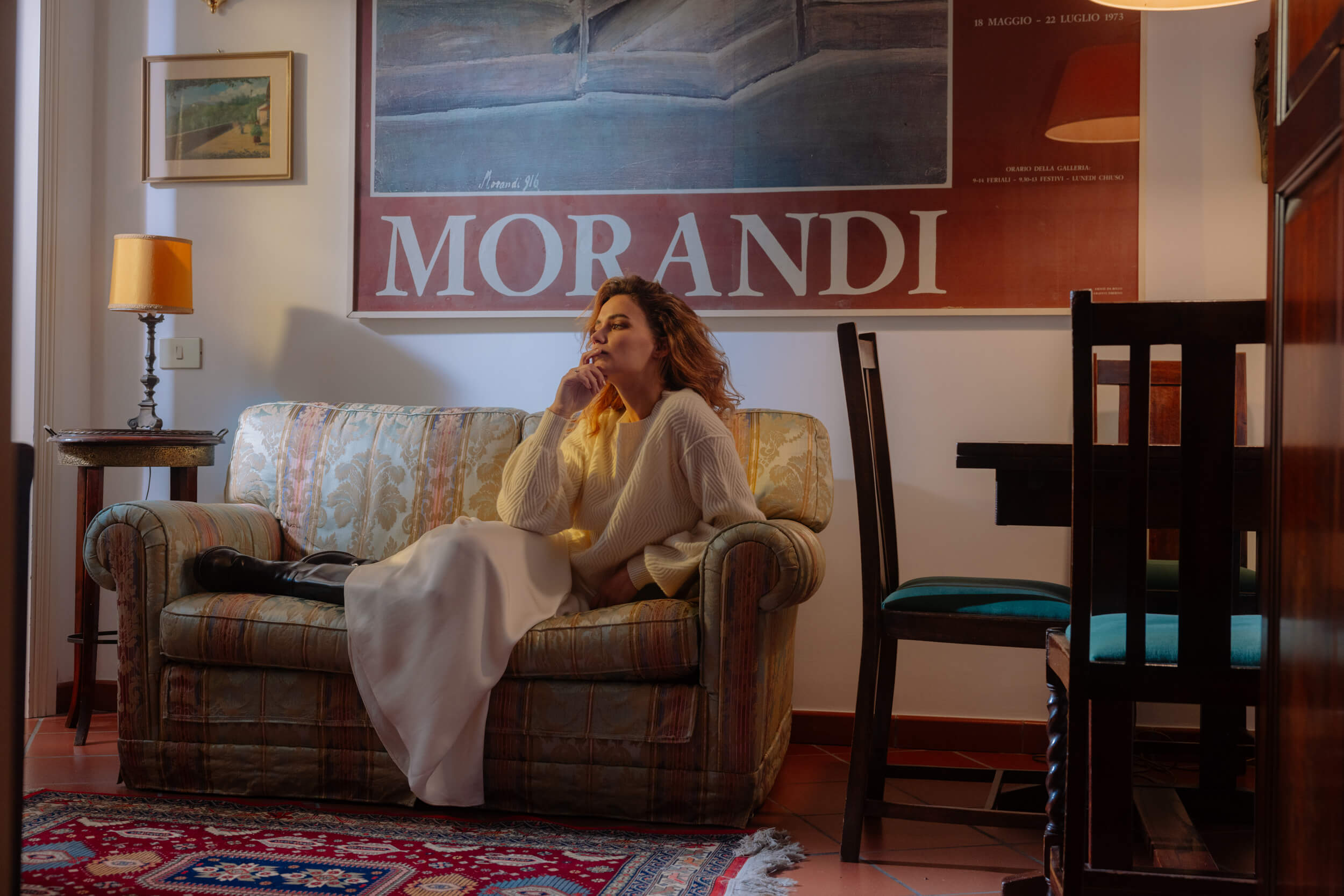
Photos & Video by Johnny Carrano.
Hair & Makeup by Sofia Caspani.
Styling by Sara Castelli Gattinara.
Assistant Styling: Ginevra Cipolloni.
Thanks to Other srl.
LOOK 1
Total look: Ballantyne
LOOK 2
Trench: Tod’s
Jumpsuit: MaxMara
Shoes: MaxMara
LOOK 3
Dress: Michael Kors
Shoes: Tod’s
LOOK 4
Jumper: Malo
Skirt: Michael Kors
Shoes: Tod’s

